Fiscal Sponsorship Update: A Long Strange Trip
Film Independent’s Fiscal Sponsorship program supports so many great films, we can’t help but brag every now and then. That’s what our Fiscal Sponsorship Update columns are all about—highlighting the awesome work in the program.
This month, we’re talking some unexpected journeys, whether they’re literal road trips with surprising destinations like in Father Son Time, trips back in time that get our hero into some dangerous situations like in Loser, into a web of corruption as in Evergreen, or even through the most mysterious and dangerous trip of all, navigating creative careers in Hollywood, ala Lost In LA.
Take a look at how these films have been progressing thanks to Fiscal Sponsorship, and how you can still help get these films across the finish line.
EVERGREEN
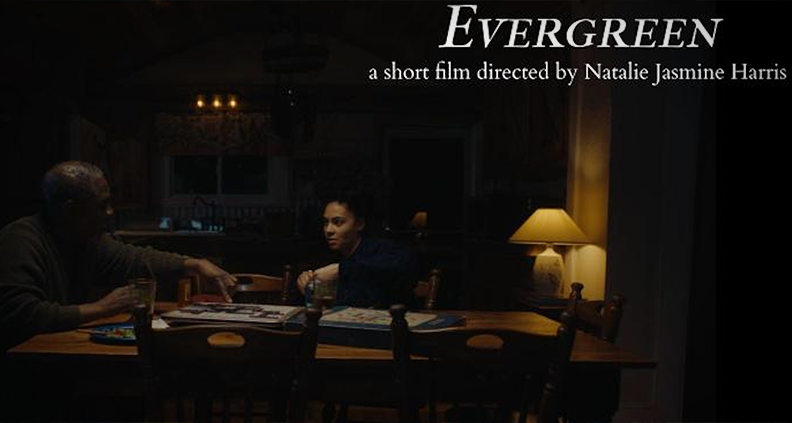
Project Type: Fiction Short
Project Status: Post Production
Filmmaker: Natalie Jasmine Harris
Synopsis: A private detective takes a job, hoping for redemption, and finds herself in the midst of an ever-expanding world of corruption.
Filmmaker Update: I’m excited to share that we successfully wrapped principal photography in November in North Carolina. We were pleased to bring on leads Kiah McKirnan (Perpetrator, Mare of Easttown, The Adults) and the illustrious Michael Potts (The Wire, The Piano Lesson, Ma Rainey’s Black Bottom) to our cast. We’ve just started our edit with Harry Cepka, who previously edited my short films Grace and Ben in Bloom.
LOSER
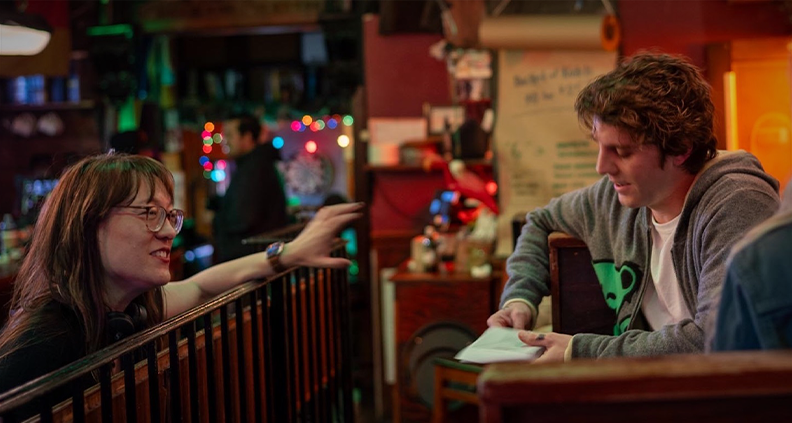
Project Type: Nonfiction Short
Project Status: Post Production
Filmmaker: Colleen McGuinness
Synopsis: A brilliant physicist, Alice, tries to heal her trauma through time travel but gets entangled in a twisted game of murder and violence in NYC, turning her quest into a thrilling cat-and-mouse chase.
Filmmaker Update: After a whirlwind 19-day shoot in New Jersey with our fantastic cast (Angourie Rice, Finn Bennett, Lukas Gage, Julia Fox, Eric Nam, Cathy Moriarty, Andrew McCarthy, Dylan Mulvaney) and amazing New York/New Jersey based crew, we have reached the rough cut phase and are aiming to complete the film later this spring. In post, we are working toward combining the initial vision for the film with all of the beautiful, unexpected moments that arose during filming. While we continue our fundraising efforts to complete post-production, we have begun mapping our film festival route with key submission deadlines approaching this spring and summer.
LOST IN LOS ANGELES
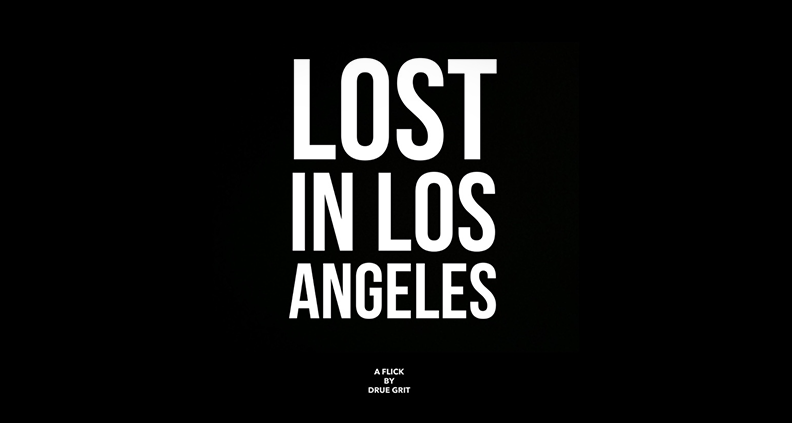
Project Type: Fiction Feature
Project Status: Pre-Production
Filmmaker: Drue Grit
Synopsis: Carson (33) and Lila (31) are actors ten years deep in Los Angeles but still can’t pay rent or find love. Two parallel stories traverse the odyssey of Hollywood and will ask: how much more rejection and sacrifice can they endure? And is there still time to make dreams and love come true?
Filmmaker update: Lila and our major roles are now fully cast with exciting actors from around the world, including Hawaiian native Ta’imua, who stars in Jane Austen’s Period Drama, nominated for a 2026 Oscar for Live Action Short Film.
As we just launched our grassroots fundraising campaign, we’ve already begun to feel strong community momentum including early distribution interest, support from Kodak to shoot on film, and the generous backing of several of our favorite locations and iconic diners across Los Angeles!
FATHER SON TIME
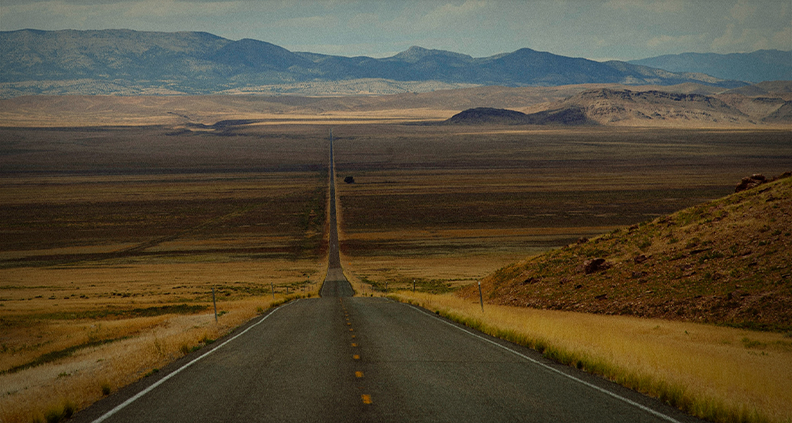
Project type: Fiction Feature
Project status: Pre Production
Filmmaker: Josh Long
Synopsis: Autistic father Clay takes his 15 year old son Sam on a spring break road trip, but doesn’t reveal that the trip’s real goal is to reconnect with the wife/mother that left them fifteen years ago.
Filmmaker Update: Production is just about a month away! We’re in the thick of casting, location scouting, and locking in our department heads. Our DP Antonio Cisneros recently returned from Park City, where two of his films (Cookie Queens and They Dream) made their debut at the Sundance Film Festival. Our team is in talks to secure various sponsorships to help provide partial funding, as well as state-of-the-art film production equipment.
We’re also excited to be working with Inclusion Films, a nonprofit filmmaking training center that is helping connect us with neurodivergent crew members for our team.
Look for some exciting casting announcements from us soon. Cameras start rolling this March, helping to keep indie filmmaking alive in Los Angeles!
Through Fiscal Sponsorship, independent filmmakers and media artists gain access to nonprofit funding, helping bring their unique visions to life. These projects embrace diversity, push creative boundaries, and showcase the power of independent storytelling. Want to explore the full lineup of sponsored projects? Head over to our Sponsored Projects page and take a look!
Film Independent promotes unique independent voices by helping filmmakers create and advance new work. To become a Member of Film Independent, just click here. To support us with a donation, click here.
Keep up with Film Independent…
Member Lens: Spirit Award Winner Anne Carey on Producing, Developing and Making the Best Possible Film
With the Film Independent Spirit Awards in just a couple weeks, we thought it was a good time to focus our Member Lens series on a Member who is a past Spirit Award winner.
Anne Carey grew up watching both blockbusters and art-house movies with her parents. She started out in art school and decided to go into film and transferred to NYU, where she found her skillset best fit producing.
Her big break as a producer came with HBO’s The Laramie Project while she was working with Good Machine. Since then, she’s been a mainstay in the indie film world, producing hits like Lost Girls, Adventureland, and 20th Century Women.
In 2016 she won Best First Feature as a producer for Marielle Heller’s Diary of a Teenage Girl. She’s continued to work with Heller on films like Can You Ever Forgive Me and last year’s Spirit Nominee, Nightbitch.
We spoke with her about what it takes to put together a Spirit Award winning film.
What was the thing that drew you to movies?
I grew up in the Midwest. And as a kid, we would just go to the movies a lot. My parents liked the movies. My mom would take us to go see everything from Marx Brothers movies to blockbusters. We just went to the movies a lot as a family.
What was your first job in the industry?
My first internship, I worked for a small production company that made car commercials in New Jersey and videotaped weddings and video resumes. And one of my jobs for the wedding videos was to cut out all the relatives the people paying for the video didn’t want preserved in the video. I guess it goes to show that one should choose one’s investors carefully.
What drew you to producing and what brought you into that world?
I did go to NYU film school, but I was definitely not a director and I was an undisciplined writer. And I was sort of organized and bossy. I think that’s kind of what happened.
My first formative job, I worked at the William Morris Agency in the Department of Literary Development – looking for books for the agency’s top client. So, I came to producing out of development. Coming to it from a story perspective– finding the narrative across any genre and then putting together the team to realize something.
I worked for a couple of different producer teams doing that. Then when I got to Good Machine, it really became about working directly with the filmmakers and the producers that were part of the Good Machine family. And that was really were I think things clicked in for me. That was the beginning of it.
The first project where I put my hand up and said, I would really like to produce this was The Laramie Project. It came into the company, and it was a competitive situation as Moisés Kaufman and HBO were looking for a bunch of different producers. I really fell in love with it, and I went to Ted Hope and James Shamus and said, ‘I’d really like to do this’.
I had never produced anything before, and I partnered with Ross Katz. He knew more about physical production that I did at the time. So, I was like, ‘We’ll work together on the development and then we’ll work together on the production’. And that was really the first one.
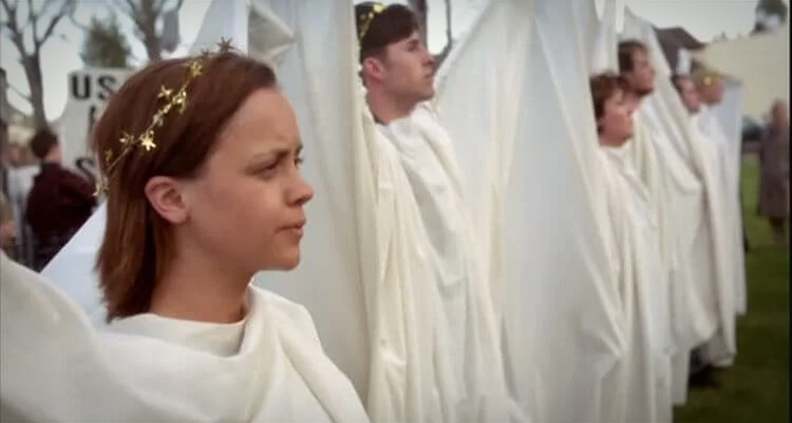
Tell me about the relationship between bringing the story element of producing, and the logistics part of producing, and how those work in tandem for you.
Once you identify a story that you love and want to make, part of the ethos of what we all practiced at Good Machine was ‘development as pre-production’. Whatever raw material you’re starting with, be it a play with 36 characters in four time-zones, or somebody’s real life story, or a novel, or even an original screenplay, the idea is just to review what’s in the script.
The script is such a specific document. Every single line and every single word is going to make a bunch of people run around to do something, right? If the script says there’s a red doorknob, somebody is going to figure out how to do a red doorknob.
It’s an interrogation of intent to make sure everything fits. And then the reality of cost– what kind of story yields what kind of budget and are we going to be able to get the resources to execute this film the way that we need.
Then being very mindful of casting. Does every character in the movie need to be in the movie? Do they all have something great to do? Does everybody have an arc, primary characters obviously, secondary characters, less so, but even still, you don’t want to spend money on a role you don’t need in a movie. Combine two mediocre parts to make one good one. Really thinking about, ‘What is going to be exciting to the actors about this?’
If there’s not a director involved, then you must do the same thing — think about why would a filmmaker come and make this? Why would somebody come and direct this movie?
Speaking of a project without directors, when you’re meeting with a new writer or director, what’s the thing that makes you want to attach yourself to a project?
I really look for the sense that they will do it whether I help them or not. That sort of drive, that sort of determination. I can’t make somebody’s movie happen for them, but I love to be part of it finding the path forward.
And if they’ve got part of a team assembled already, making sure that team is all moving in the same direction. I think that’s essential.
I love that.
I want to talk about a little bit about your experience with the Spirit Awards. You won for Diary of a Teenage Girl, which I loved. NightBitch was great as well and a big Spirit Award nominee last year. Talk about your relationship with Mariel Heller and how that’s grown over the years.
I initially met Mari because of a project that didn’t happen. The subject of the story decided that they didn’t want to give us their life rights at the last minute, but I really loved Mari. So I asked, ‘what else are you doing?’
She had the rights to Diary of a Teenage Girl, and she was putting it on as a play. I was really taken with her point of view on it. And just how bold it was to be able to put it on a play and direct and act in it.
And then it ended up being accepted by the Sundance Labs. That was a huge win for us. Mari came out of that lab with a great script and great sense of how to direct the film.
And then we dealt with all the problem solving of how to deal with the animation and how to put that cast together. She had some great relationships already and the women from Cold Iron became a very big part of it. And the producers from Caviar became part of it.
It was a lot of all-hands-on-deck to support her, but again, to my point about directors, Mari won that award. We just participated with her.
My relationship with her continues to be a good one. Whether it’s coming together on something that I share with her that she responds to like Can You Ever Forgive Me? – a mutual love for those characters and loving that as a New York movie, and then subsequently joining her and the team at Annapurna, with Amy Adams and her team on Nightbitchplus bringing in our friends at Searchlight to get it made.
I’m always thrilled to be part of putting a thoughtful group of collaborators together. Like all directors who are most exciting to me, Mari’s movies are so different from one another. She’s always pushing into new territory. She’s never safe. And I really admire that.
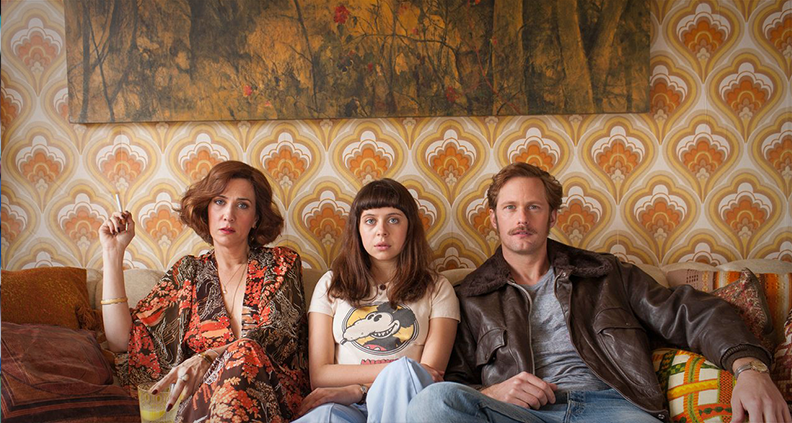
What makes the Spirit Awards unique in the awards season landscape?
If you want to see the happiest man ever at the Spirit Awards, there is a brief clip of Mari’s dad, when her name was called, and I don’t think there’s ever been a happier person at the Spirit Awards.
But I think for many filmmakers, it’s that first initial recognition, right? And the fact that it falls in the calendar where it does in the awards season mix and that cool party by the beach. Coming from New York in February – scrappy, dark, gray winter and indie world, it always feels fun and sexy to be at that party.
As a young filmmaker you feel recognized by the industry at a very special time in the industry’s calendar year. For many emerging producers and filmmakers of all sorts, it’s a recognition of being part of something.
Still, you can be an independent filmmaker all your life. I think sometimes there’s a misconception that you start off being an independent filmmaker, so you can grow up to be a studio filmmaker. Sometimes you just want to make films that are just a little outside the system. It’s great to see that type of filmmaking gets celebrated.
When did you become first aware of Film Independent? What made you want to be a Member?
I think I was just a member of the Independent Feature Project. And then Film Independent became its own thing. I think I have been part of it since before the split. And then once it’s split, like, why wouldn’t I be part of both?
What’s been your favorite part of being a Member?
Obviously, the ability to see all the movies and to know what’s coming and to feel like you’re participating and you can have a voice. I think that’s the real plus of it.
And I’ve worked frequently with the International Programs, which are fantastic. At various times, I’ve also done judging and mentoring as well.
But most of all, it’s just a sense that there’s a community and we can access one another.
That leads me to my next question, which is about mentoring. Why that’s important for you?
I think there are people making movies today that I can learn things from, in terms of audience and genre and approach.
So many of the conversations today are about how do you find your audience? And how do you reach your audience? One of the things I love about being a producer is that every day is a different day, that each project has its own universe.
I love the different points of views, different voices, learning how somebody figured out something in a way that I hadn’t before. Hopefully I’m giving back to people. I was so lucky to have incredibly generous mentors along the way, and so I try to return that.
Great. I love that. Is there anything that you want people to know about?
I spent many years at a company called Archer Gray. I think I really helped build and define it. And I spent last year working with Priyanka Chopra’s company under a first look deal at Amazon which was very exciting. And now at the top of 2026 I find myself independent on my own. And I’m enjoying it. It’s a bit of a new thing.
That is exciting. And I hope all the best for you.
Remember to tune in to the 41st Film Independent Spirit Awards on Sunday, February 15, 2025, which will be helmed by Saturday Night Live alum Ego Nwodim. The show, taking place in Hollywood, and will be streamed live on the IMDb and Film Independent YouTube channels, and across our social platforms.
Want to vote for the winners of the 2026 Spirit Awards? Easy: just Become a Member today and you’ll be able to watch screeners of the nominees and vote for the winners, plus you’ll get year-round access to a plethora of virtual and in-person screenings, special events, education, workshops and more.
Film Independent promotes unique independent voices by helping filmmakers create and advance new work. To support us with a donation, click here.
More Film Independent…
Guest Post: Embrace Your Journey with Episodic Fellow Van Nguyen
We asked 2020 Episodic Lab Fellow Van Nguyen to share her experience in the Film Independent Episodic Lab developing her series project Descent, about a Vietnamese cop torn between the duty to her family and her oath to protect and serve.
Applications for next year’s Episodic Lab are currently open, with the regular deadline of February 2.
***
I was sitting in my apartment during covid lockdown, wondering what the future held, when I received an email that changed the course of my life path. “Your project is in consideration for the 2020 Film Independent Episodic Lab, and we’d love to schedule an online interview.”
As the youngest and only American born in my family, I had a great fascination with film and TV as a kid. This was partially due to the fact my older siblings babysat me, and (as any good babysitter would do) they let their kid sister watch tons of films and TV shows that were not catered to my age group. But, that was the beginning of my journey as a storyteller. I learned about character. I learned about visual language. I learned about story. And I was always deeply invested. One day, I discovered another story, one I didn’t watch on a screen, but only learned about by asking: my parents’ harrowing journey to America. When my mom shared their story, I felt every emotion, envisioned the entire journey, and saw my parents through a different lens. This was the power of storytelling, and I knew in that moment, it was my jam. Hollywood, here I come.
Not so fast. I had no clue how or where to start, but I did know this: writing is accessible. You can do it when you can, where you can, and do it as often as you can if that’s the path you want to pursue. However, there’s no set path to this life. The only person who can direct you on this path – is you.
For years, I applied to every program, lab, contest, and film festival I could reasonably afford. I placed in a few contests and festivals, but never a program or lab. It didn’t stop me from continuing to try. It didn’t stop me from continuing to write. Those trying years of writing in my spare time outside of working in different careers to pay the bills were some of the best years of my life. It allowed me to further hone my voice on the page and develop my craft as a writer and as a person.
CUT TO: 2020
I had just finished my most personal pilot yet, one that revolved around a Vietnamese-American family in my hometown of Houston. It’s not a story we see often on our TV screens, but one that is close to heart. I wasn’t sure if anything would come of it, until I received that wonderful email from Film Independent.
Receiving this at the height of a pandemic where everyone was reevaluating things in their life was monumental. Film Independent is a leading organization that fosters new and diverse talent. I was thrilled and honored to be given a chance to grow within a Film Independent program.
I, along with my fabulous cohort, experienced two solid weeks of meetings, workshops, panels, and discussions from the most giving people. LaToya Morgan, Dailyn Rodriguez, Gloria Calderón Kellett, Veena Sud, and the many executives from Netflix, FX, and Searchlight just to name a few. We had a mock writers’ room with Beth Schacter where we broke an episode. All of this was a dream come true.
My favorite thing from the lab was our focus on pitching. Not just pitching our project, but pitching ourselves because I learned that is just as valuable as the project. There is no project without you. At this point in my career, I was still new to talking about myself and essentially “selling” myself. We’d pitch, get notes, rework it, then pitch again, get notes, rework it, over, and over. At the end of the lab, the cohort has to pitch in front of a ton of Netflix executives. This was during covid, so it was a big brady brunch of approximately twenty of us on Zoom. It was nerve-wracking, exhilarating, and fun all at the same time. Executives that ranged from comedy, drama, genre all took the time out of their day to listen to us. With the help of Film Independent, my cohort, and the encouraging people who listened and gave thoughtful feedback, I walked away from the lab feeling more confident.
When I look back on my journey from being a little kid mesmerized by storytelling, to an adult who gets to tell stories for a living, I’m forever grateful to all the people I’ve crossed paths with. Those two magical weeks of Episodic Lab really taught me to dive deep, not just with my project, but dive deep with myself.
After the Episodic Lab, I continued my journey with Film Independent as a Project Involve Fellow. The community I’ve gained from that fateful email I received in 2020 has been absolutely invaluable. Do yourself a favor and apply because you never know what will happen.
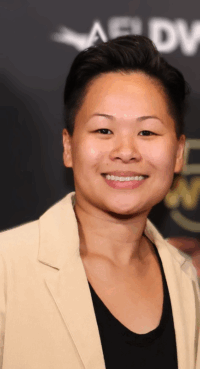
Van B. Nguyen is an award-winning queer Vietnamese-American writer/director who built a career in production as an assistant director before making the leap to a writing career. Her work has been placed in the Nicholls, Sundance, Austin Film Festival, and she has been a fellow for the WeForShe WriteHer List, Film Independent Episodic Lab as well as Film Independent Project Involve. Van has a feature film titled BLACKOUT on Netflix. Most recently, Van served as a writer for three seasons on CBS’s BLUE BLOODS. Van continues to develop film and TV projects, exploring characters and perspectives we rarely get to see on screen. Her experience and knowledge on set, paired with her passion for storytelling, make her a valuable asset. Subscribe and follow her journey on Substack here.
Film Independent promotes unique independent voices by helping filmmakers create and advance new work. To become a Member of Film Independent, just click here. To support us with a donation, click here.
More Film Independent…
Fiscal Sponsorship Update: Three Fiscally Sponsored Films Make Good
With all the great films the Film Independent’s Fiscal Sponsorship program supports, we can’t help to brag about all the awesome work in the program from time to time. That’s exactly what we do in our Fiscal Sponsorship Update columns.
This month, we’re featuring a trio of films that have leveled up in one way or another. We have a feature that got an announcement in Variety, one that will have its world premiere at this year’s Slamdance, and one that nabbed a nomination at this year’s NAACP Image awards. Congrats to all the filmmakers! Read more to see what all the excitement is about!
ZUGZWANG
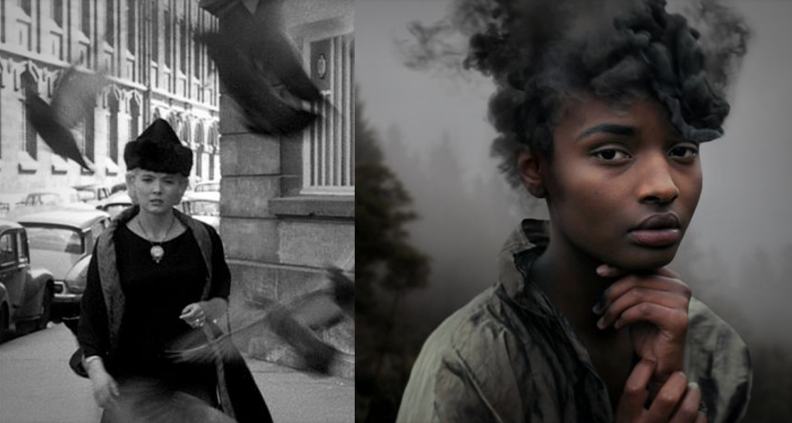
Project Type: Fiction Feature
Project Status: Development
Filmmaker: Bridget Stokes
Synopsis: A private detective takes a job, hoping for redemption, and finds herself in the midst of an ever-expanding world of corruption.
Update: Christina Elmore (Insecure) is attached to star and the film was announced in Variety, which said “Stokes, Owens and Levenfeld will also visit Park City to meet with potential distributors and partners as “Zugzwang” moves into its next phase of development.”
CIRILO, A LEGACY UNTOLD
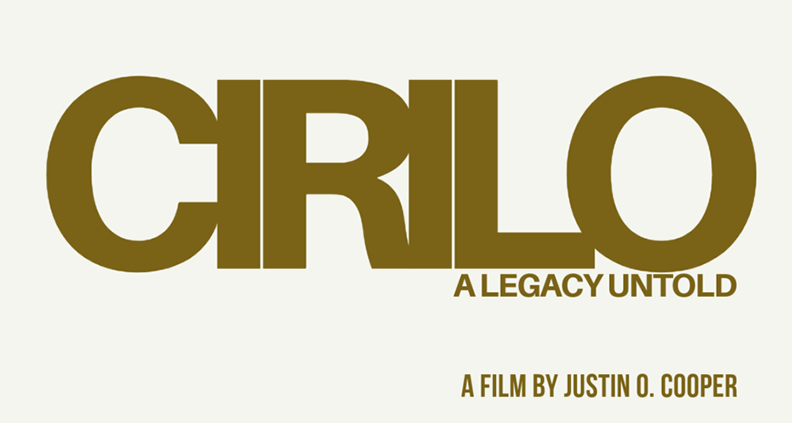
Project Type: Nonfiction Short
Project Status: Complete
Filmmaker: Justin O. Cooper
Synopsis: Born into poverty in Panama, Cirilo McSween defies the systemic racism of Jim Crow America to pursue the American Dream. As an entrepreneur and civil rights activist, he battles prejudice and inequality to become a transformative figure in the histories of Panama and Chicago, inspiring generations across the Americas.
Update: Now complete, Cirilo, A Legacy Untold has had a successful festival run including winning Best Documentary Short at the San Antonio Black International Film Festival. Recently the film was nominated for an NAACP Image Award in the category of Outstanding Short Form Documentary (Film). You can watch a trailer for the film here:
THREE COLORS: PAN-AFRICAN
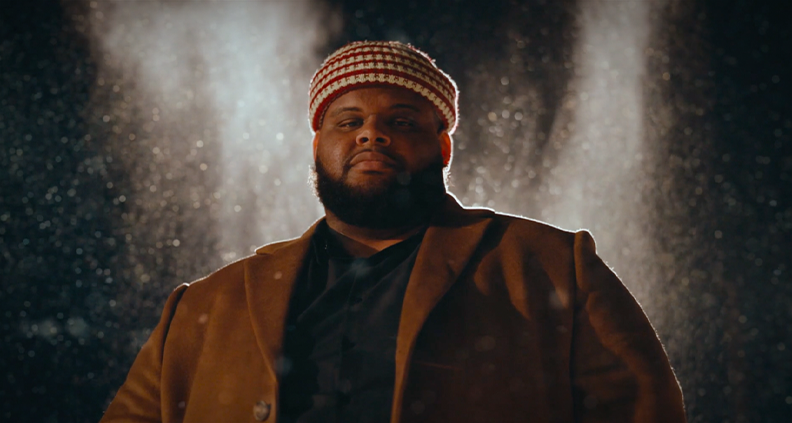
Project Type: Fiction Feature
Project Status: Complete
Filmmaker: Elijah Davis, Allison A. Waite, Tyler Ocasio Holmes
Synopsis: An anthology feature film that uses the Pan-African flag as its thematic reference point, featuring three chapters correlated to the colors of the flag: In RED, collegiate football star Ahmari Rose scrambles to save his career after a devastating injury fractures his sense of self worth. In BLACK, a Ghanaian single mother, Joana Mensa, faces deportation after being fired from her job, prompting an unlikely group of heroes to rally around her. In GREEN, Jontavious “John” Rodgers, the up-and-coming star of a struggling Black sitcom, questions his role as the network forces the show into an unexpected direction to boost ratings.
Update: Three Colors: Pan-African will make its world premiere at this year’s Slamdance Film Festival
Through Fiscal Sponsorship, independent filmmakers and media artists gain access to nonprofit funding, helping bring their unique visions to life. These projects embrace diversity, push creative boundaries, and showcase the power of independent storytelling. Want to explore the full lineup of sponsored projects? Head over to our Sponsored Projects page and take a look!
Film Independent promotes unique independent voices by helping filmmakers create and advance new work. To become a Member of Film Independent, just click here. To support us with a donation, click here.
Keep up with Film Independent…
Gregg Araki is Back, and We’re Hot and Ready
To call Gregg Araki’s work “important” would be an understatement, borderline insulting even. His Teen Apocalypse trilogy—Totally F***ed Up (1993), The Doom Generation (1995), and Nowhere (1997)—captured contemporary teen angst in all its chaotic glory without fear or filter. These films were acts of rebellion in their dogged exploration of sexuality, drugs, and coming of age at the turn of the 21st century. In a way, they represented the yang to the yin (or vice versa, depending on interpretation) that was the John Hughes teenage depiction that dominated the 1980s. With the founding of Strand Releasing in 1989—a film distributor focused on supporting cutting-edge LGBTQ stories—and the New Queer Cinema movement emerging in the early 1990s, Gregg Araki naturally became an integral part of that piece of cinema history. He brought the “weird” and “bad” youth, characters from the fringes of society, to the forefront of auteur cinema. So, his work is more than just important. It’s f***ing necessary.
The Spirit Awards nominee—Best Director, Mysterious Skin (2004)—is finally releasing his highly anticipated upcoming feature titled I Want Your Sex, in true Araki fashion. It’s set to premiere at this year’s Sundance Film Festival, starring Olivia Wilde and Cooper Hoffman.
Described as a “dominatrix drama,” it follows Elliot (Hoffman) who lands a job working for acclaimed artist and provocateur Erika Tracy (Wilde). She sets her sights on him and turns him into her sexual muse, his fantasy turned reality, but it leads them on a more fiery and vice-filled path than Elliot had imagined. They are joined by seasoned players Johnny Knoxville, Daveed Diggs, and Margaret Cho; up-in-coming players Chase Sui Wonders and Mason Gooding; and music sensation-turned actor Charli XCX. She’s an inclusion that furthers excitement, and shouldn’t come as a surprise to anyone familiar with Gregg Araki.
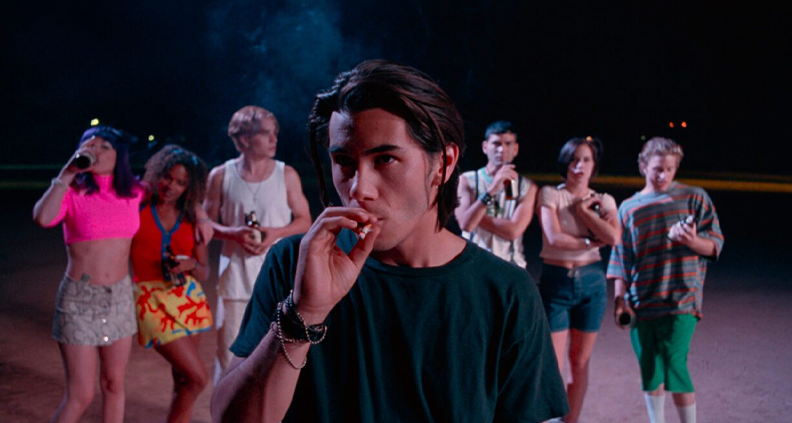
It’s a collaboration that points to his close attention to music and style, two key elements that distinguish himself from his peers through his lens. He heavily uses the sounds of alternative music—Cocteau Twins, Slowdive, Lush, Babyland, etc.—which acts as both a device to create mood and a guiding star for characters. Beyond the screen, these song choices are so tied to passionate and sustained subcultures and identities that they’ve played a critical part in establishing Araki’s cult following. This musical selection pairs wonderfully with his equally alternative visual style, accomplished by two main factors: costume design and set design.
Costumes fluctuate between effortlessly cool street fashion looks, like James Duval in any of his Teen Apocalypse roles, to eclectic pattern and color driven looks, like Rachel True in Nowhere or Haley Bennett in Kaboom (2010). In regards to set design, there’s a nice balance of indoor and outdoor sets, but it’s the former as seen in The Doom Generation that’s worth spotlighting. It holds one of the most, if not the most, iconic sets in Araki’s filmography: the black and white checkered room. It’s maximalist, yet polished. Hence, his apparent magnetic appeal to unconventional-leaning creatives as collaborators and cinephiles as consumers.
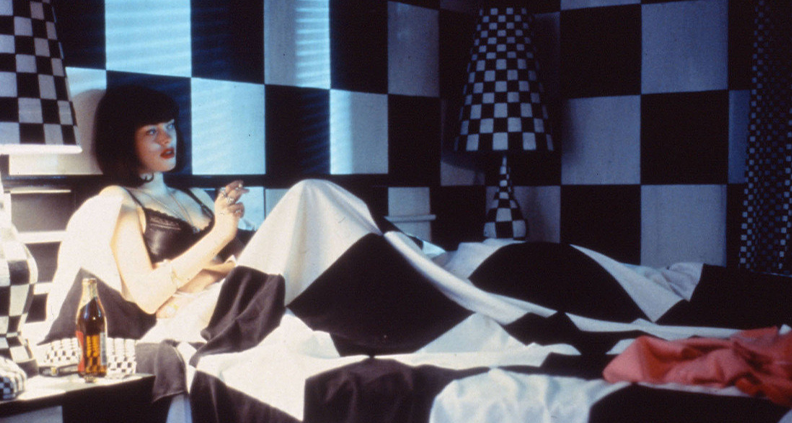
It’s been more than a decade since his last feature film, although he’s kept busy on the television side of things. He created the series Now Apocalypse (2019) for Starz and directed an episode for Netflix’s Monster: The Jeffrey Dahmer Story (2022), which were exciting projects in their own right, but his artistic vision on the big screen has been sorely missed. No other writer-director can successfully integrate sexual confidence, artistic flare, and foreboding quite like he can so consistently. A promise made, stylistically and authentically, since his incredibly obscure and independent debut Three Bewildered People in the Night (1987).
Critics and fans are understandably eager for I Want Your Sex. It’s turning out to be a bold introduction to a new generation, and a reintroduction to generations who’ve been there since the beginning. As long as Gregg Araki creates until the end of the world really does happen, as he likes to explore so much, we’ll die happy.
For over 40 years, Film Independent has helped filmmakers get their projects made and seen. The nonprofit organization’s core mission is to champion creative independence in visual storytelling in all its forms, and to foster a culture of inclusion. We support a global community of artists and audiences who embody diversity, innovation, curiosity and uniqueness of vision. To support our mission with a donation, click here.
Keep up with Film Independent…
VIDEO: JLaw, KStew, EHawke & More: What You Missed Last Fall From Film Independent Presents
DIE MY LOVE
Featuring: Jennifer Lawrence (Actor/Producer), Justine Ciarrocchi (Producer); moderated by Rebecca Ford (Vanity Fair)
Where to Watch: Mubi
Logline: Grace, a writer and young mother, is slowly slipping into madness. Locked away in an old house in Montana, her increasingly agitated and erratic behavior leaves her companion, Jackson, increasingly worried and helpless.
What critics are saying: “But I loved it the first time I saw it, and loved it more the second. Not only because it takes a huge swing and connects, but because this is the role I’ve been wanting to see Lawrence play since I first saw her in ‘Winter’s Bone’ all those years ago. Watching someone go for broke and actually make it is exhilarating.
And when a movie leaves me feeling as if I just swam across rapids and barely dragged myself out alive— well, that’s why I go to the movies,” writes Alissa Wilkinson for the NYTimes.
Interview Highlight: “I was so aware of how important ‘I’m sorry’ is, because I was doing the opposite…. and I, Jennifer, I am a wife and I am responsible for someone’s feelings, and I would just be like, ‘She’s gotta say sorry at some point.’ It made me really aware how much that can change the course of something—being aware and accountable and saying ‘I’m sorry’.”
LEFT-HANDED GIRL
Featuring: Shih-Ching Tsou (Co-Writer, Director, Producer), Sean Baker (Co-Writer, Producer, Editor), Shih-Yuan Ma (Actor), Nina Ye (Actor); moderated by Rebecca Sun Where to Watch: Netflix
Logline: A single mother and her two daughters relocate to Taipei to open a night market stall, each navigating the challenges of adapting to their new environment while striving to maintain family unity.
What critics are saying: “How much can a family bear before it begins to burst? LeftHanded Girl seeks to ask, as each character’s internal tensions bleed into broader family dynamics, culminating in more of an explosion than a slow unraveling. But perhaps the ultimate test of strength occurs when the dam breaks, Tsou seems to argue — when the water begins to flood, washing away old traditions and instead, creating something surprising and new,” writes Teresa Xie for NPR.
Interview Highlight: “So for the character…this scene is where she finally had the opportunity to have this release for herself and also for the whole family. Everything they had been storing inside, the emotions and resentments and loves and expressions that had been accumulating inside that’s causing conflict and misunderstanding, they can finally be released… In the scene, her motivation is as simple as, ‘She’s had enough.’ These things need to be said and that’s why it was such an explosive scene for her.”
THE CHRONOLOGY OF WATER
Featuring: Kristen Stewart (Writer, Director, Producer); moderated by Katie Walsh (LA Times)
Where to Watch: Theaters
Logline: A woman, after an abusive childhood, escapes into competitive swimming, sexual experimentation, toxic relationships, and addiction before finding her voice through writing.
What critics are saying: “It cuts deep even while washing over you with soothing images of water, as the title suggests. ‘Come in. The water will hold you,’ says Lidia at the end, which is exactly what the movie invites us to do, in ways that may be triggering, but perhaps also cathartic,” writes David Rooney for The Hollywood Reporter.
Interview Highlight: “If a lot of your reality is shaped by what you read, and a lot of your own memories are unearthed by what you read when it’s really true, this was such a nice, perfect way of making something really personal, but also about everyone.”
PREDATORS
Featuring: David Osit (Director, Producer); moderated by Christy Lemire (Film Critic, Breakfast All Day)
Where to Watch: Paramount+
Logline: A documentary exploring the controversial NBC series that caught potential child predators in sting operations, leading to arrests, and its eventual cancellation.
What critics are saying: “But as David Osit’s probing, troubling documentary ‘Predators’ demonstrates, the sociological implications of the show were (and are) anything but simple, beginning with what the series’ popularity suggests about the viewers who watched it,’ writes Ben Kenigsberg for the NYTimes.
Interview Highlight: “A lot of documentaries are just kind of there, and they’re made, and they’re purporting to be the voice of ethical goodness, and they’re purporting to tackle a social issue in some way, and you’re right as an audience because you watched the movie, and then the movie’s over, and you’re right, and the film’s right, and you’re affirmed by the movie. And I think at a certain point I started to realize this is not how the world works and in fact makes the world much smaller, to not have experiences that challenge us. It challenged me making it and so I wanted to challenge you watching it.”
BLUE MOON
Featuring: Ethan Hawke (Actor); moderated by David Canfield (The Hollywood
Reporter)
Where to Watch: VOD
Logline: In 1943, lyricist Lorenz Hart confronts his shattered self-confidence in a bar as his former collaborator, Richard Rodgers, celebrates the opening night of his groundbreaking hit musical “Oklahoma!”.
What critics are saying: “Hawk sells all of Hart’s delusions, destructive impulses, and high-velocity downward spirals with an energy that keeps this bitchy, old-school collection of bon mots and screwball bickering moving along nicely. Portraits of great men given the movie-star treatment usually accentuate the positive. Linklater finds it more interesting to look at a self-sabotaging artist’s greatest misses. It’s a tribute that’s really a cautionary tale,” writes David Fear for Rolling Stone.
Interview Highlight: “It’s as if Lennon and McCartney are gonna break up one night, and one of them is gonna start a band that’s bigger than The Beatles, and the other is gonna die… that’s how high the stakes are. That’s a pitch. This is a wild ninety minutes in a person’s life.”
RENTAL FAMILY
Featuring: HIKARI (Writer, Director, Producer), Eddie Vaisman (Producer), Julia Lebedev (Producer); moderated by Francisco Velasquez (Film Independent)
Where to Watch: Theaters/VOD Jan 13th
Logline: An American actor in Tokyo struggling to find purpose lands an unusual gig: working for a Japanese “rental family” agency, playing stand-in roles for strangers. As he immerses himself in his clients’ worlds, he begins to form genuine bonds that blur the lines between performance and reality. Confronting the moral complexities of his work, he soon rediscovers purpose, belonging, and the beauty of human connection.
What critics are saying: “But thanks to HIKARI’S elegant direction, a nimble and melancholic script by HIKARI and Stephen Blahut, and the tenderhearted and attuned performances by an ensemble led by Brendan Fraser, Takehiro Hira, Mari Yamamoto, and Akira Emoto, this is a beautiful and contemplative film, with lovely messaging and a couple of sly twists. I’m not ready to call it the best film of 2025, but it might just be my favorite,” writes Richard Roeper for RogerEbert.com.
Interview Highlight: “Something really beautiful happens with those people who provide the service, they’re actually being healed by the person who gets the service. You think it’s the other way around because the person who rents is so lonely and there is that truth, but there is a human energy that happens whenever you give something positive, you also receive the positive energy. I always have a good time when I help someone. I always feel like I’m gaining so much more love then I’m giving.”
These screenings were all free for Film Independent members. Join today, and the next one can be free for you too.
For over 40 years, Film Independent has helped filmmakers get their projects made and seen. The nonprofit organization’s core mission is to champion creative independence in visual storytelling and support a community of artists who embody diversity, innovation and uniqueness of vision.
Keep up with Film Independent…
2026 Brings a Brand-New Cohort of 33 Project Involve Fellows for Year 33
New Year, new voices! We are proud to introduce the 2026 Film Independent Project Involve cohort, our flagship fellowship program that has, for over three decades, been a launching pad for diverse and visionary filmmakers.
There’s a beautiful sense of symmetry this year—Project Involve’s 33rd year brings 33 new Fellows into the program. The filmmakers will be introduced at this year’s Film Independent’s First Look Screening on Thursday, January 15th (tickets available to the public), where the five shorts produced by the 2025 Project Involve cohort.
Adding to the significance of this year, we’re proud to welcome Tina Mabry (The Supremes at Earl’s All-You-Can-Eat, Mississippi Damned)—a Project Involve Fellow—as this year’s Directing Resident Mentor. Resident Mentors work closely with the cohort throughout the program year, offering creative insight, industry knowledge and career guidance across disciplines. Mabry is joined by Rachael Fung (Eye for an Eye, Fremont) as Producing Resident Mentor and Julio Perez (Euphoria, Malcolm & Marie) as Editing Resident Mentor. Ruth Atkinson (Script Consultant and Story Editor) and Aaron Edmonds (Vice President of Film at Hartbeat) return as Story and Creative Executive Resident Mentors, respectively.
Project Involve is a year-long program for filmmakers from diverse backgrounds. Fellows engage in one-on-one meetings with film industry mentors, attend workshops and conversations led by renowned professionals, join industry networking events and collaboratively produce five short films from inception to completion.
In the coming year, these trailblazing filmmakers will dive deep into the filmmaking process on an intensive, hands-on journey—developing six original short films from script to screen. Supported by expert mentors and a collaborative community, they will refine their craft, experiment boldly, and create work that challenges the status quo. Their journey culminates in a highly-anticipated First Look Screening, a spotlight moment where their creativity and hard work will captivate audiences and industry insiders alike.
“In our 33rd year, Project Involve is proud to welcome 33 exceptional Fellows into the Film Independent family,” said Francisco Velasquez, Associate Director, Project Involve. “This moment reflects the heart of the program—creativity, collaboration and growth coming together in a complete cycle. We are incredibly excited to support this cohort as they embark on a transformative journey together.”
Before we introduce the fellows, we’d like to share the generous Grants that we have for our Project Involve Fellows.
As part of the University of Arizona School of Theatre, Film & Television’s ongoing partnership with Film Independent through the FTV LA initiative, the inaugural TFTV Fellowship – a $10,000 unrestricted cash grant awarded to an outstanding TFTV alum participating in Project Involve – will be awarded to Rafael Gomez.
Plot Shift Media returns with the Climate Entertainment Commissioning Grant to award a $25,000 grant to one talented screenwriter to help them to create a new climate-focused fiction feature script, helping to build a pathway for projects centered around climate.
Both Amazon MGM Studios and Sony Pictures Entertainment will each provide $10,000 unrestricted cash grants to selected filmmakers participating in the program at a later date.
Plus, there’s a Panavision Fellowship that offers a cinematographer in the program a camera package valued at $60,000 for a future project in the US.
Let’s meet this year’s fellows:
ANIMATORS
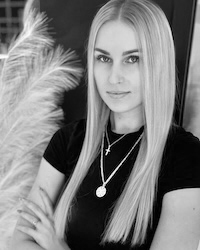
Inna Mikhailova (she/her) – Supporting Animator
Inna Mikhailova is a Los Angeles-based VFX and animation artist who earned her MFA in 3D Animation and Visual Effects from the New York Film Academy. After graduating in 2022, Mikhailova completed the Academy Gold Rising internship in the visual effects track, which led her to commercial and cinematic post-production. She has contributed to major productions including The Little Mermaid and The Guardians of the Galaxy Holiday Special, as well as various advertising and motion design projects. A Film Independent Project Involve Fellow, Mikhailova continues to explore storytelling through animation and is especially inspired by handcrafted and stop-motion visual techniques.

Rika Nakayama (she/her) – Director/Animator
Rika Nakayama is a filmmaker from Japan specializing in stop-motion and experimental animation. She earned her MFA in Experimental Animation from the California Institute of the Arts in 2024. Drawing from nature, memory, and sensory experience, her work uses tactile materials to bring intangible subjects to life. Her 2022 film Under a Shooting Contrail has screened at more than 20 international festivals and earned multiple awards, including Best of the Fest and Best Student Director at the Los Angeles Animation Festival. Nakayama is a 2026 Film Independent Project Involve Stop-Motion Director Fellow.
CINEMATOGRAPHERS
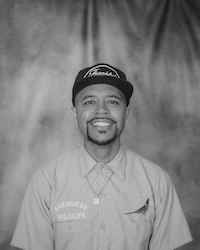
Matty Beavers (he/him)
Matthew Beavers is an African-American and Filipino cinematographer whose artistic voice is rooted in identity, memory, and the quiet beauty of real life. Beavers began filmmaking in community college, discovering in the camera a way to preserve the worlds he comes from. His work favors naturalistic lighting, intimate framing, and emotional clarity. He also teaches cinematography, empowering young filmmakers to trust their lived experience as the foundation of their visual language. Beavers is a 2026 Film Independent Project Involve Fellow.

Rafael Gomez (he/him)
Rafael Gomez is a Mexican-born Cinematographer and Producer based in Los Angeles. He’s a graduate of the University of Arizona School of Theatre, Film & Television. His thesis film La Graduación screened as part of KQED’s Film School Shorts program. His subsequent narrative work has screened at numerous film festivals around the world including Heroines (SXSW, 2019) and Her House (Fantastic Fest, 2024). Gomez is a Cinematography fellow in Film Independent’s Project Involve and continues to shoot and produce commercial, narrative, and documentary projects through his production company Cine Ceviche for clients like NGL Mitú, Netflix, and Live Nation.
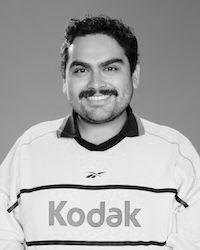
Kelvin Kataria (he/him)
Kelvin Kataria is a Peruvian-Indian cinematographer from Houston, Texas, and a Film Independent Project Involve Fellow. His visuals are shaped by the arts, stills photography, and his belief in community. He was a cinematographer in Issa Rae’s Color Creative Find Your People Program and has led workshops such as Cinematography on Celluloid for the Houston Cinema Arts Festival, supported by Kodak and Panavision. Kataria volunteers as a cinematography mentor for Kids in the Spotlight and is a recipient of Panavision’s New Filmmaker Grant. He champions an inclusive filmmaking landscape, where every storyteller’s voice is given a platform to thrive.
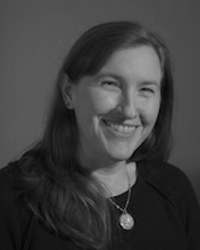
Kate Ketcham (she/they)
Kate Ketcham is a cinematographer based in Los Angeles, with roots throughout the United States. As a 2026 Film Independent Project Involve Fellow, she is passionate about telling character-based stories that explore big questions from unusual perspectives. She studied at William and Mary, Los Angeles City College, and the American Film Institute. The passion for empathy and understanding of how we make and find meaning in our lives continue to drive her choices as a filmmaker. She is a member of the ICF+C and the SOC, and has been a mentee in the ASC Vision Mentorship program.
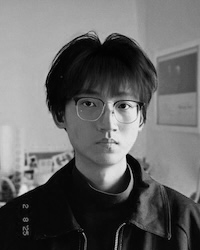
Tianyi Liu (he/him)
Tianyi Liu is a Beijing & Los Angeles–based cinematographer and colorist, and an AFI Cinematography alumnus. He was a camera operator on Zhang Yimou’s upcoming feature, Scare Out. Liu shot and graded the Amazon Prime feature Portal in the Pines and served as DI Colorist for the theatrical film A.I. His work has screened internationally, with Aves selected for the CAA Moebius Showcase and Roadside Banquet shown at the Cannes American Pavilion, winning the CineGear Jury Award. His projects have also been featured at CineGear. Liu is an SOC Associate Member and a 2026 Film Independent Project Involve Fellow.
DIRECTORS

Loren Escandón (she/her)
Originally from Cali, Colombia, Loren Escandón is a Los Angeles–based filmmaker and Film Independent Project Involve Fellow whose work explores the resilience of women of color in contexts of social and cultural disadvantage. Escandón’s short Los Patines won Best Short at the San Pedro International Film Festival and Best Director at NYC Downtown Shorts. Her film The Last Store received the Best Director Award at FilmQuest. Her latest short, Gris, produced with support from Netflix through the Latino Film Institute Inclusion Fellowship, had a special screening at LALIFF and celebrated its world premiere at Bogoshorts 2025.
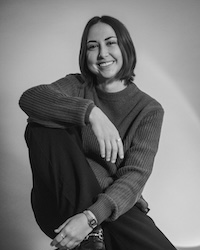
Sydne Horton (she/her)
Sydne Horton is a queer writer-director raised in the Midwest, now based in Los Angeles. Her film Saturday Ritualpremiered with Palm Springs ShortFest, screened at the 2025 Cannes Film Festival with the American Pavilion Emerging Filmmaker Showcase, and won the Best Teen Film Audience Award at NewFest. Her earlier works were exhibited at Seattle’s Museum of Pop Culture and featured in the book I Spit on Your Celluloid: The History of Women Directing Horror Movies. Horton is a 2026 Film Independent Project Involve Directing Fellow, and an alum of Women in Film’s Directing Mentorship and the Emmys Television Academy Internship.

Omar Kakar (he/him)
Omar Kakar, architect-turned-filmmaker, shapes stories where form meets soul. Born in New York and raised in Southern California, he is a first-generation Afghan-American with a professional B.Arch. from Woodbury University. His visual experiments, blurring space and story, were showcased internationally at Arquiteturas Film Festival, Architekturclips Netzwerk, and ArchDaily. With an MFA in Film Directing from Columbia University, his short film Man in the Morgue screened at the Directors Guild of America, Lincoln Center, and NFMLA. A finalist in Sony Pictures and Warner Bros. directing programs, Kakar is a Film Independent Project Involve Fellow, exploring the human condition through cinema.

Robin Wang (he/him)
Robin Wang is an award–winning director based in Los Angeles, whose expansive filmography explores nuanced Asian diaspora stories about characters wandering on the margins of cultures. Wang’s films have screened at prestigious festivals worldwide including Telluride, Tallinn Black Nights, and Cannes American Pavilion. His historical short Neither Donkey nor Horse earned him a Student Academy Award and the DGA Student Award. His comedy short Wei-Lai won College Television Awards’ Best Comedy Series, and Stage 32 Short Film Contest Grand Prize. Wang holds an MFA from USC and a BA from Duke. He is a Film Independent Project Involve Directing Fellow.
EDITORS
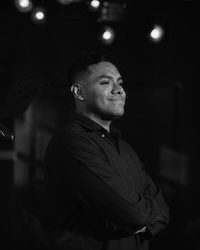
Mario Fierro (he/him)
Mario Fierro is a Mexican-American film editor who obtained his MFA from the AFI Conservatory in 2020. He began his filmmaking journey as Cardi B’s personal videographer, and after turning 30, he decided to focus exclusively on editing. Since then, Fierro has edited several feature films, including A Place in the Field, which was acquired by Lionsgate, and Party People, which premiered at the 2024 Austin Film Festival. His latest short film, Sweet Talkin’ Guy had its world premiere at the 2025 Sundance Film Festival. He is a 2026 Film Independent Project Involve Fellow.
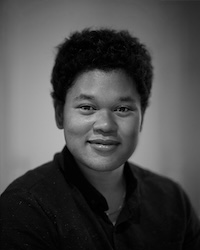
Haruka Gerald (he/him)
Haruka Gerald is a Black-Japanese American film editor based in Los Angeles. Originally from Austin, Texas, he earned his degree in Film Studies and Production from Hofstra University. Gerald has known he wanted to be an editor since the age of nine and has been pursuing that dream ever since. A member of the Motion Picture Editors Guild, he currently works as an Assistant Editor, with recent credits including Superman and IT: Welcome to Derry for HBO. Gerald is a 2026 Film Independent Project Involve Fellow.
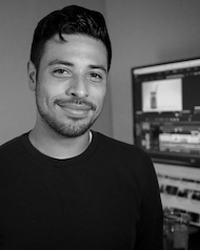
Alexander Gonzalez (he/him)
Alexander Gonzalez is a California Bay Area-born editor passionate about storytelling that promotes belonging for those who desire inclusion through film. He moved to Los Angeles after graduating from San Francisco State University’s film program. His professional experience includes working with Disney Channel, Amazon Prime, Masterclass, Nike, and Issa Rae’s Find Your People. He recently joined the editor’s union and continues to edit narrative and animated projects that celebrate underrepresented voices. He brings relentless tenacity and a steady presence that gives confidence to the directors he collaborates with. Gonzalez is a 2026 Film Independent Project Involve Fellow.
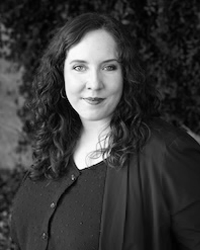
Joanna Phillips (she/her)
Joanna Phillips is an editor with television credits including NBC’s award-winning This Is Us, Amazon’s The Wilds, and the Hulu limited series Saint X. She holds a B.A. in Film Studies from Columbia University and is a 2026 Film Independent Project Involve Fellow. Phillips has also worked as a visual effects editor on such projects as Hulu’s Paradise and Death and Other Details, and is an alumna of the WIF Fellowship Program. The short film she edited, Catalogue of Noses, premiered at the 2025 LA Shorts International Film Festival and won Best Director at the Jeonju International Film Festival.
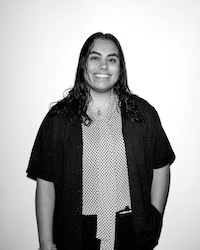
Yessenia Sánchez (she/her)
Yessenia Sánchez is a bilingual filmmaker from Northern California. After receiving her BFA in Film from Pratt Institute, her thesis film Double Cultura won the HBO Max Latino Short Film Competition in 2023 and was licensed to stream on HBO Max. Her recent narrative credits include editing Please Return Your Carts, a rom-com short film from the Find Your People Program organized by Issa Rae’s Color Creative, and editing season three of Lost Memories, a series for Alzheimer’s Los Angeles. She currently works as an Assistant Editor for SixTwentySix and is a 2026 Film Independent Project Involve Editing Fellow.
EXECUTIVES

Nora Bernard (she/her)
Nora Bernard is a Los Angeles-based film programmer and artist development administrator who has supported filmmakers globally through publicity, marketing, education programs, and festivals. She has gained industry experience through organizations such as the Telluride, Tribeca, and Urbanworld Film Festivals, as well as the Sundance Institute. Originally from “The World’s Borough,” Queens, New York, it’s only natural she’d gain a passion for international storytelling. A 2026 Film Independent Project Involve Fellow, she brings a well-rounded approach to support emerging and mid-career creatives navigating today’s independent film landscape in the hopes of discovering new and innovative ways to distribute their work.
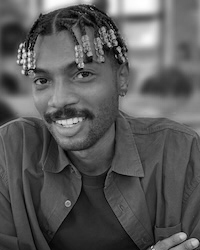
Uriah McKinney (he/him)
A lifelong lover of storytelling, Uriah McKinney is drawn to grand, world-building fantasies and intimate narratives that explore the bittersweet truths of everyday life. After graduating from Columbia University, he moved to Los Angeles and began working in development and production. He has held roles at Nickelodeon, Disney+, and Walt Disney Animation Studios, where he supported the development of Versa and consulted on Strange World and Wish through the studio’s Black employee resource group. A 2026 Film Independent Project Involve Fellow, he now works at Sony Pictures Animation and is passionate about championing projects that create pathways for underrepresented voices.
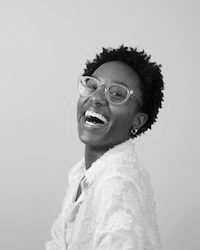
Lauren Milan Rausaw (she/her)
Lauren Milan Rausaw is a Los Angeles–based producer and designer currently working in series development at Sony Pictures Entertainment. She recently produced a documentary with creative agency Newfound. Drawn to bold, witty, character-driven narratives, her films have screened at SFiFF, LALIFF, and more. Her previous experience includes post-production on Amazon Prime’s Expats, The Gotham, and commercial work for Nike. Rausaw holds an MFA in producing from AFI and a BFA from RISD. She is a 2026 Film Independent Project Involve Fellow.
As a designer, she creates pitch decks and branded content for clients including members of the Producers Guild of America, Producers United, and Sony Pictures Entertainment.
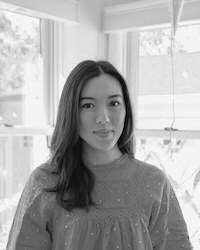
Olivia Stark (she/her)
Olivia YiSu Stark is a mixed-race Asian American creative from Los Angeles working in feature development at Skydance Animation, where she supports four-quadrant animated films, including Spellbound and Swapped. Stark previously served as development coordinator on the studio’s first animated series, Wondla, adapted from Tony DiTerlizzi’s YA sci-fi fantasy novels for Apple TV+. A 2020 Armed With a Camera Fellow at Visual Communications, she produced the animated short Jook, which premiered at the Los Angeles Asian Pacific Film Festival. A 2026 Film Independent Project Involve Fellow, Stark is committed to championing creator-driven, emotionally resonant storytelling.
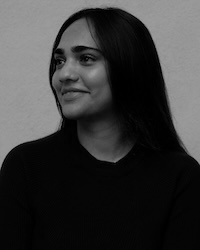
Meera Vaidya (she/her)
Meera Vaidya is a Los Angeles–based producer originally from Mumbai, India, passionate about storytelling that entertains while sparking meaningful dialogue and social awareness. She started her career at an advertisement production company in Mumbai before earning her MFA in Creative Producing from Columbia University. Vaidya has produced a web series and multiple short films showcased at prestigious festivals like Sundance, Palm Springs, and Woodstock. She has honed her skills working in both management and production companies in Los Angeles and is a 2026 Film Independent Project Involve Fellow.
PRODUCERS
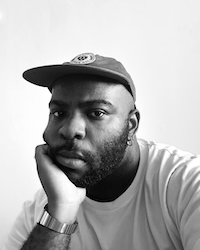
Chidi Amadiume (he/him)
Chidi Amadiume is a Nigerian Writer-Producer based in Los Angeles. His work addresses queer normalcy, the chaos and wonder of romance and love, and familial relationships on the brink of failure. He seeks to create stories that feel familiar, accessible, and specific yet resonate universally. He has written, directed, and produced films that have played internationally at festivals, including Newfest, Inside Out Toronto, Woodstock Film Festival, and more. His film Grief Retreat was made as a Producing Fellow in Issa Rae’s Inaugural class of the Find Your People Program. Amadiume is currently a 2026 Film Independent Project Involve Fellow.
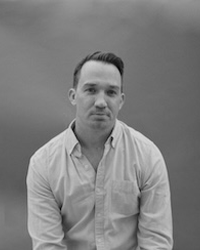
Carver Diserens (he/him)
Carver Diserens, a freelance producer in LA, also works for Almanac Screenwriters and Stage 32. Prior to becoming a Film Independent Project Involve Fellow, Diserens produced Creature Comforts and Act Your Age in 2025, two of his 16 producer credits. His commercial production company, Whisperwood, has collaborated with 1-800-Flowers, PSD, Monarch, and more. He has 17 years of production experience on Curb Your Enthusiasm, Men in Black 3, Anchorman 2, Person of Interest, and The Colbert Report. Diserens received an MFA from Columbia University in 2017. That summer, he was the Maxwell Gray film fellow at The University of Michigan.
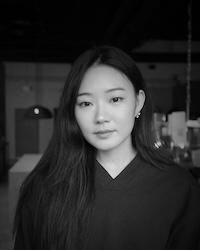
Shuqi ‘Suki’ Li (she/her)
Born in China, Shuqi ‘Suki’ Li is a Los Angeles–based independent producer and Film Independent Project Involve Fellow. She holds an M.F.A. in Creative Producing from the AFI Conservatory. Over five years, she has produced more than forty projects across narrative short films, commercials, music videos, and vertical series. Recent credits include In Wonderland (Austin Film Festival, AFI Fest, Cleveland International Film Festival) and Langue (Palm Springs ShortFest, Student Academy Awards semifinalist, NOWNESS Short Film Award jury recommendation).
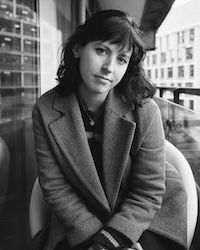
Rachel Moss (she/her)
Rachel is an Emmy-nominated producer, director, and writer, and a 2026 Film Independent Project Involve Fellow on the Producer track. She’s produced for documentaries that have premiered on Netflix, HBO, Amazon, Apple, and at the Sundance Film Festival. She got her start on TV shows such as Patriot Act with Hasan Minhaj (Netflix) and Full Frontal with Samantha Bee (TBS). Rachel also produced the narrative short Max Distance (SXSW 2025). She’s brought comedians’ solo shows to the Edinburgh Fringe Festival. Rachel’s short Guardian’s Grove, which she wrote and directed, won the PANO Network Color Grading Grant.
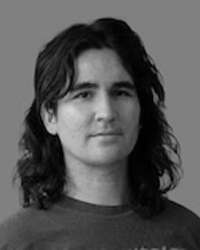
Carlo Padilla (he/him)
Carlo Padilla is a Mexican-American animation producer based in Los Angeles and a 2026 Film Independent Project Involve Fellow. His experience in animation has included Nickelodeon’s The Casagrandes, Marvel’s X-MEN 97′ and is currently a production manager at Titmouse. He has also produced an animated short film titled The Apricot, which has over 10 official selections across 5 different countries, 2 awards, and counting. Between productions, Padilla is developing animated projects and volunteering for non-profit organizations that build communities and diversity in animation.

Parco Richardson (he/him)
Parco Richardson is a Marine Corps veteran turned filmmaker based in Arizona, with over a decade of experience in commercial and branded content. He has produced and written award-winning short films and screenplays, bringing a disciplined yet creative approach to storytelling. In 2024, he was selected for Issa Rae’s Find Your People program through ColorCreative as a producer, where he produced two short films – Wake Up, winner of Best Sci-Fi Film at the Vortex Film Festival in Rhode Island, and The Braid. Richardson is a 2026 Film Independent Project Involve Producer Fellow.
WRITERS
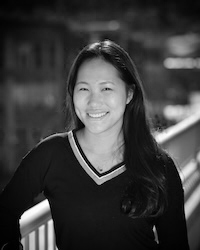
Haley Chung (she/her)
Haley Chung is a bicoastal filmmaker and writer originally from Vancouver, BC. A 2026 Film Independent Project Involve fellow and former Fred Rogers Productions writing fellow, she has written for multiple Emmy-nominated PBS Kids series such as Rosie’s Rules, Donkey Hodie, and Lyla in the Loop. She loves exploring her Cantonese heritage through absurd stories, like her script about Chinese vampires which was named a semifinalist for the 2026 Disney Entertainment Television Writing Program. She graduated magna cum laude from Columbia University, where she received the Pat Anderson Prize in Film Reviewing for her thesis on Minnie Mouse.
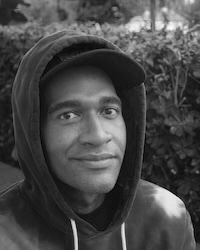
Bryce Marrero (he/him)
Bryce Marrero is an LA-born writer, director, and self-deprecating geek. He was a writer on Nickelodeon’s It’s Pony, directed films for Hoorae Media and ShortsTV, and was in the Coverfly Top 1%. Recently, he became a 2026 Film Independent Project Involve Fellow, completed the Writers Guild Support Staff Training Program in 2025, mentored by Debbie Ezer (The Good Doctor) and Clay Lapari (Wandavision), and is currently developing a sci-fi film with Vital Pictures (The War Below). He loves to make people laugh, even when they beg him to stop.
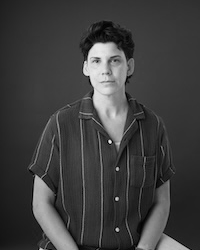
Nikki Palumbo (they/them)
Nikki Palumbo is a non-binary writer and comedian based in Los Angeles but still reeks of New Jersey. Most recently, they wrote for the WGA Award-nominated Tiny Time Travel on PBS Kids. Their mob comedy pilot Lil Italy won the ATX TV Festival Pitch Competition in 2022 and was selected for the 2025 Black List x WIF Episodic Lab and WIF Writing Fellowship. They are a fellow in the 2026 Film Independent Project Involve as well as the Yes And Laughter Lab with Personality Hire, an AI mockumentary sadly based on real experience.

Raymond Arturo Perez (he/him)
Raymond Arturo Perez is a storyteller from San Antonio, Texas, and wrote on Selena: The Series (Part II). Perez centers stories on folks that better reflect the diversity in our world. He is an alum of programs by Latino Filmmakers Network, Sony Pictures Television, Starz, and Out in Hollywood. Perez received a BS and BBA from UT Austin andreceived an MFA in Screenwriting from AFI. Perez is a 2026 Film Independent Project Involve Fellow. His directorial short film debut White Space premieres in 2026. When he isn’t writing at his kitchen table, Perez dances to salsa and Brazilian funk.
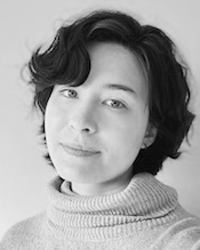
Jacky Watson (they/them)
Originally from Alaska, Jacky Watson is an LA-based writer with a rich Ukrainian-Peruvian heritage and queer identity. As a Writer’s Assistant on Leverage: Redemption, Watson wrote an episode with the show’s co-creator and produced it on location. Watson’s pilot Re-Life featured on the 2024 Latine List and their feature Peruanitos was selected for Stowe Story Labs x Galway Film Fleadh’s 2025 Development Workshop. Currently, Watson is a Writing Fellow for Film Independent Project Involve. A sci-fi/horror nerd equipped with a few survival skills, Watson writes inventive, authentic stories about complex people.
WRITER/DIRECTOR
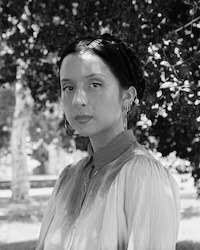
April Maxey (she/her)
April Maxey is a writer/director from San Antonio, Texas. Her short film, Work, made in the AFI DWW, played at Sundance, Tribeca, and won the Grand Jury Prize at Outfest. Her feature screenplay for Work was selected for the NALIP Feature Media Accelerator, Film Independent’s Fast Track, Gotham Week Project Market, and was supported by a One House x Sundance grant. April is an alumna of Berlinale Talents, the WBD Directors Access Program, and a current Film Independent Project Involve Fellow. A queer Tejana filmmaker, Maxey is passionate about stories exploring the complexities of queer intimacy, grief, and healing.
Congrats to all the Fellows!
We can’t wait to witness their journey at the upcoming sold-out First Look Screening, where these new voices will take center stage. For more information about Project Involve and other Film Independent programs, click here.
Film Independent’s Project Involve Principal Sponsors include the City of Los Angeles Department of Cultural Affairs, Formosa Group, the Golden Globe Foundation, LAIKA, Panavision and Picture Shop. Supporting Sponsors are Amazon MGM Studios, Los Angeles County Department of Arts & Culture, Plot Shift Media, SAGindie, Sony Pictures Entertainment and University of Arizona School of Theatre, Film & Television. Additional support is provided by Indiana University Jacobs School of Music and The Office of Supervisor Holly J. Mitchell of the Second District of the County of Los Angeles.
Film Independent promotes unique independent voices by helping filmmakers create and advance new work. To become a Member of Film Independent, just click here. To support us with a donation, click here.
More Film Independent…
High Frequency Vibes at the 2026 Spirit Awards Nominee Brunch
After a stormy couple of weeks in Los Angeles, the clouds parted and the sun shined through on Saturday, January 10 for the 2026 Film Independent Spirit Awards Nominee Brunch.
The brunch was hosted by the hilarious Natasha Rothwell (How to Die Alone, The White Lotus) and Hannah Einbinder (Hacks). Both donned shades because, according to Einbinder, they both “radiate an effervescent glow.”
The pair presented the three Emerging Filmmaker Awards, each carrying with it a $25,000 unrestricted cash grant for its recipient.
It was easy to feel like you were floating on air, especially on the rooftop of The London West Hollywood. A-listers, indie darlings and creatives all came together to celebrate the best in independent cinema and television.
PRODUCERS AWARD
The Producers Award, in its 29th iteration, went to Tony Yang for his work on Blue Sun Palace and Lucky Lu. The award honors emerging producers who, despite highly limited resources, demonstrate the creativity, tenacity and vision required to produce quality, independent films. This included a $25,000 grant presented by Producers United.
SOMEONE TO WATCH AWARD
Tatti Ribeiro won the Someone to Watch Award for her work directing the feature Valentina. The award, in its 32nd year, recognizes a talented first-time narrative filmmaker of singular vision who has not yet received appropriate recognition and includes a $25,000 grant.
TRUER THAN FICTION AWARD
Rajee Samarasinghe, director of Your Touch Makes Others Invisible, won the Truer Than Fiction Award, which is presented to a first-time director of a non-fiction feature and includes a $25,000 grant. 2026 marks the 31st awarding of the Truer Than Fiction Award.
Between the poolside snacks, penthouse espresso and a good old-fashioned giant white tent, it’s more than fair to say that the Hollywood is feeling like a great fit for 2026 Spirit Awards.
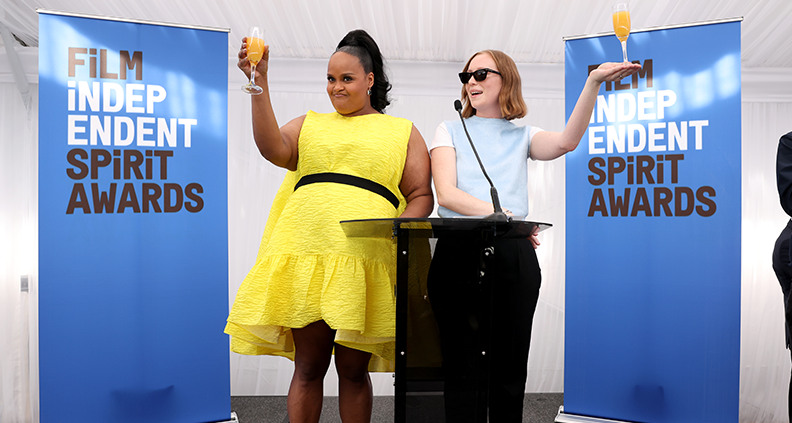
To see all the nominees, click here. Remember to tune in to the 41st Film Independent Spirit Awards on Saturday, February 15, 2026, which will be helmed by Saturday Night Live alum Ego Nwodim. The show, taking place at the famed Hollywood Palladium, will be streamed live on the IMDb and Film Independent YouTube channels, and across our social platforms.
Film Independent promotes unique independent voices by helping filmmakers create and advance new work. To support us with a donation, click here.
More Film Independent…
Year In Review: Our Best Blog Posts of 2025
An eventful 2025 is now firmly in the rearview. With the (slight!) window between the holidays and the heart of Awards Season, now is as good a time as any to look back at some of our favorite interviews, lists and writing from the past year. It’s also a great chance to see what you might have missed on the blog. So let’s get hyperlinking!
January
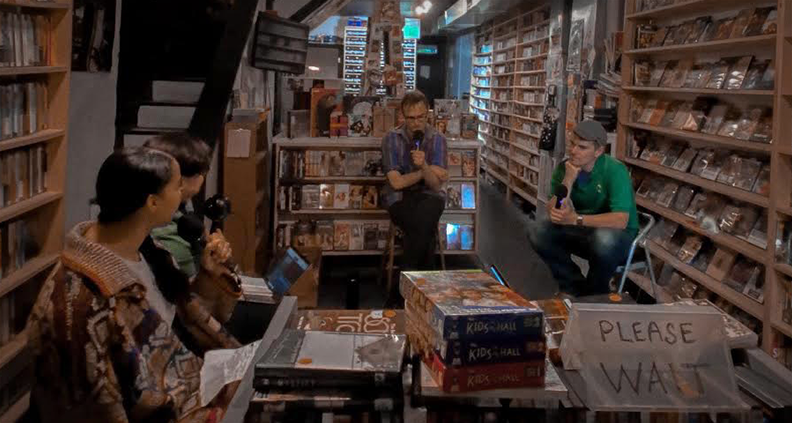
Disc Jockeys: How Beyond Video Opened a New Video Store in the Age of Streaming
The year started on a somber note as we lost our President and friend, Josh Welsh on New Years, then days later wildfires ravaged Altadena and the Pacific Palisades.
Considering all that, we still wanted to highlight a positive from January, and that was the inaugural Disc Jockeys column. We spoke with Eric Allen Hatch and Kevin Coelho from Beyond Video in Baltimore about pioneering using the non-profit model to start a video store and film center in the age of digital media.
February
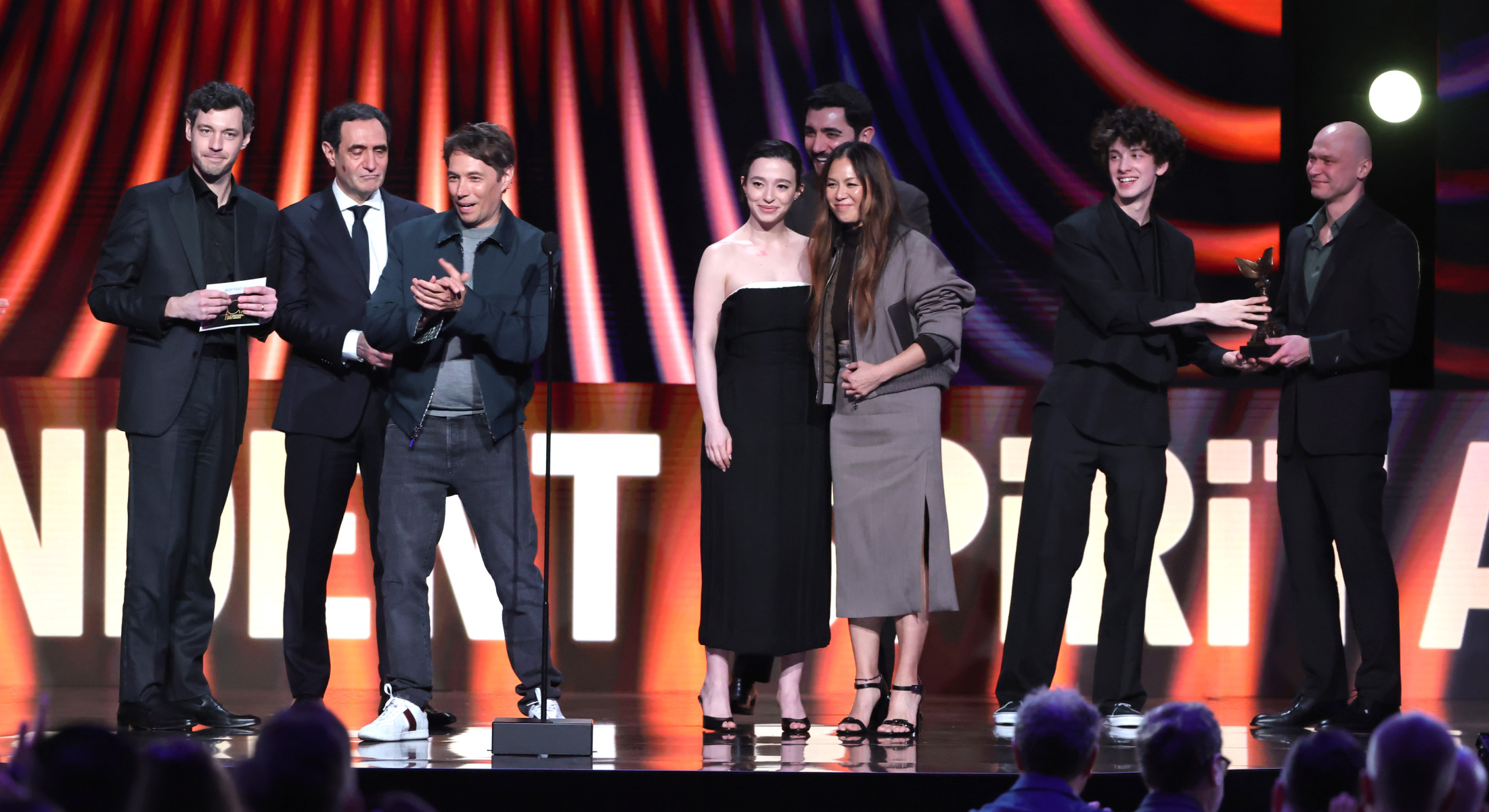
Everything You Missed at the 2025 Film Independent Spirit Awards
February is of course Spirit Award month here, and we took in the beach and sunshine of Santa Monica one more time, as we celebrated the best in indie film and TV including some Film Independent Fellows and LA Film Festival Alums like Sean Baker and Jomo Fray.
March
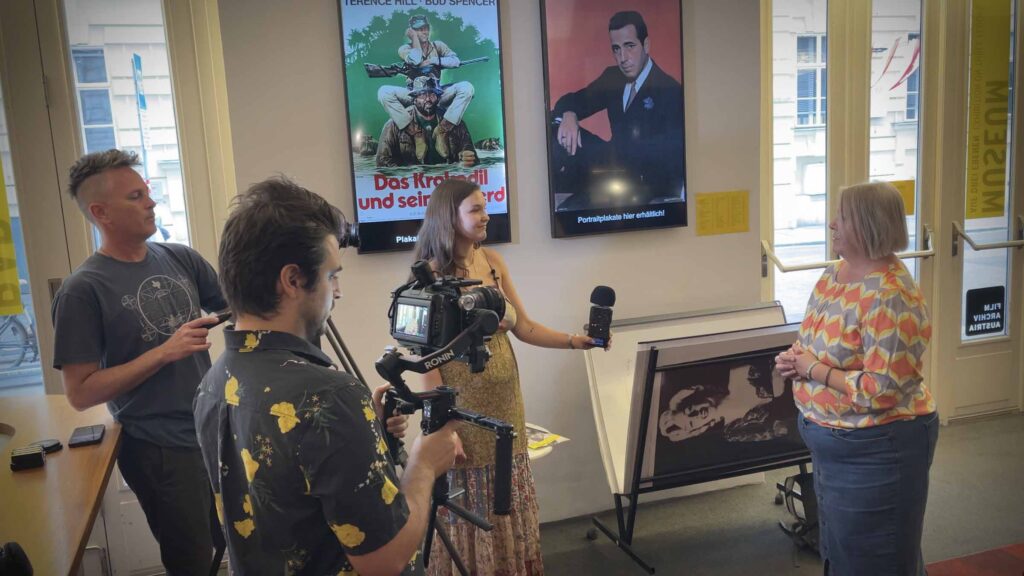
How to Make a Film for Under $100K
It seems like the era of the Ultra Micro Budget film is here to stay. We spoke with Felix Werner, co-founder of Modern Media Company and HieronyVision about how to make the most out of a budget in the tens of thousands, and how to make the final product get the attention it deserves.
May
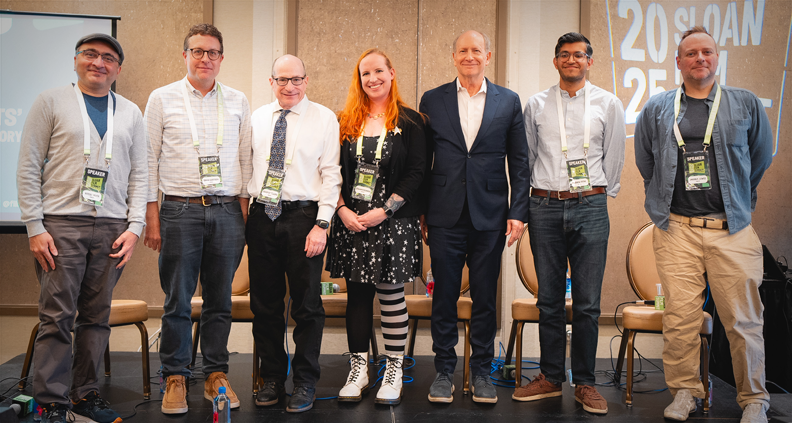
MAKING IT FEEL REAL: Scientific Consultants Panel at Sloan Summit
There was plenty of fun to be had at our 2025 Sloan Science and Film Summit, (Take a look at everything that happened here). But one highlight was the Scientific Consultants Panel, where we learned about how to decide how much jargon to put in shows like The Pitt, and what happened when the stars of The Big Bang Theory shared their Stephen Hawkings impressions with the man himself.
June
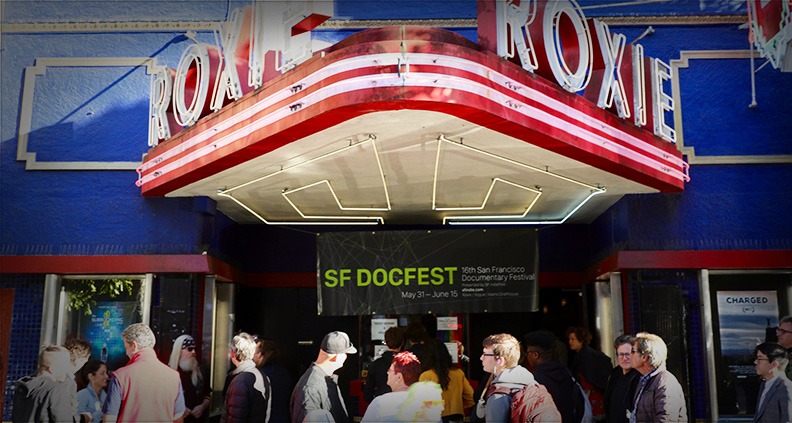
Festival Visions: Film Fests – What Are They Good For?
We traveled north to the San Francisco DocFest for a panel that asked the question many starting filmmakers have surely asked at some point in their journey- what good is submitting my film to all these festivals anyways??? Well, it turns out to be more than you’d think. Read on to find out what programmers from SFFilm, Mill Valley and other fests had to say.
July
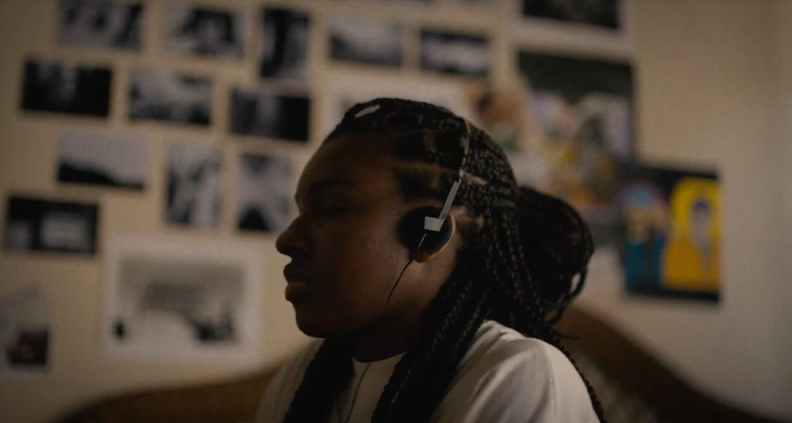
Project Involve Deep Dives-
Project Involve is a unique program, because it brings filmmakers together to actually make a film. If you miss out on the First Look Screenings (this year’s is on Jan. 15 and open to everyone), there aren’t that many chances to see all the hard work our PI Fellows have done. We showed three past Project Involve films here on the blog and spoke with the filmmakers about the process here.
August
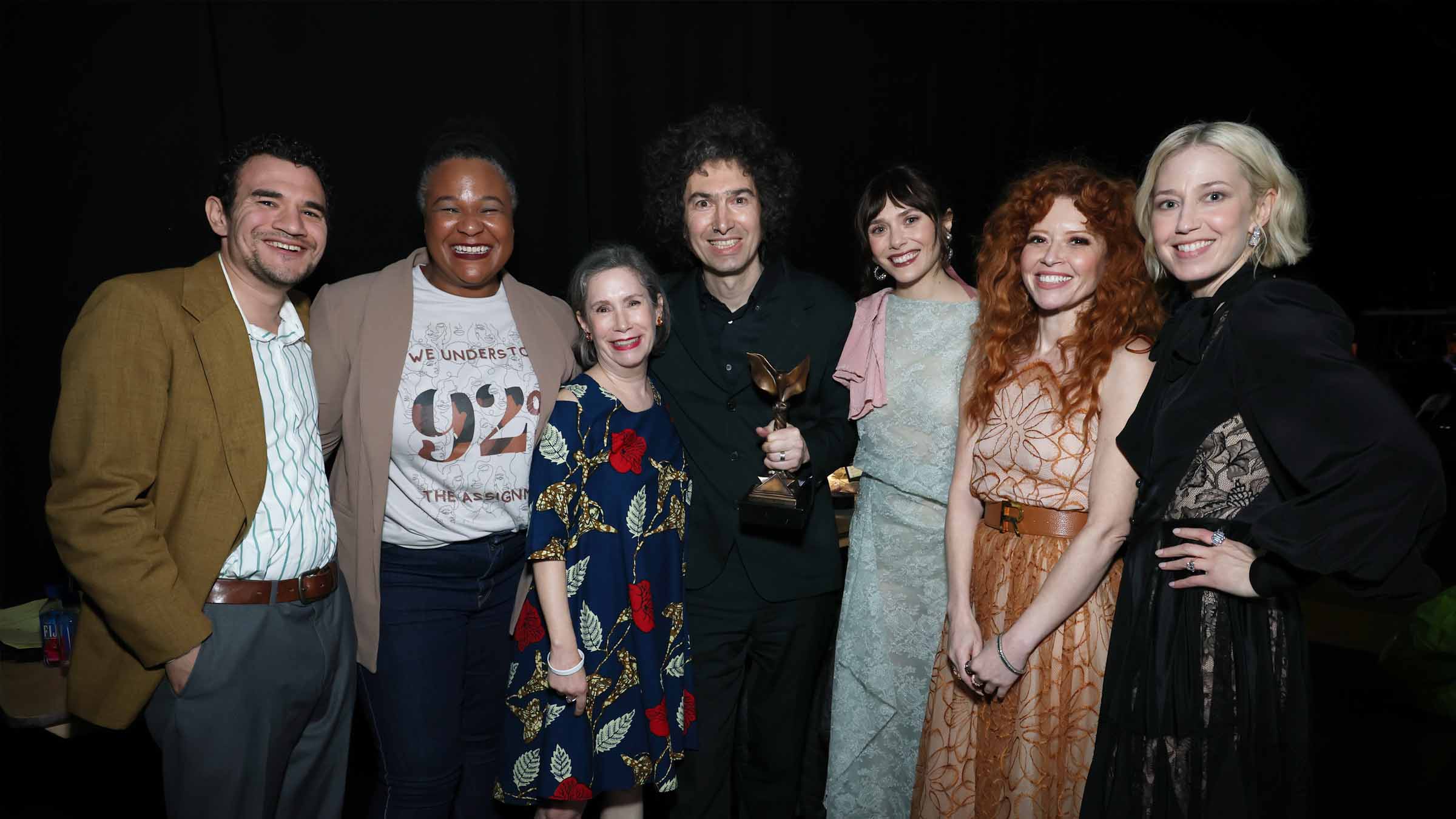
Member Lens: Casting Director & Spirit Award Winner Nicole Arbusto
It’s not often you get to talk to a Spirit Award winner. Casting Director and Altman Award winner for His Three Daughters Nicole Arbusto shared her journey and why she loves working with the next generation of filmmakers at Film Independent so much.
September
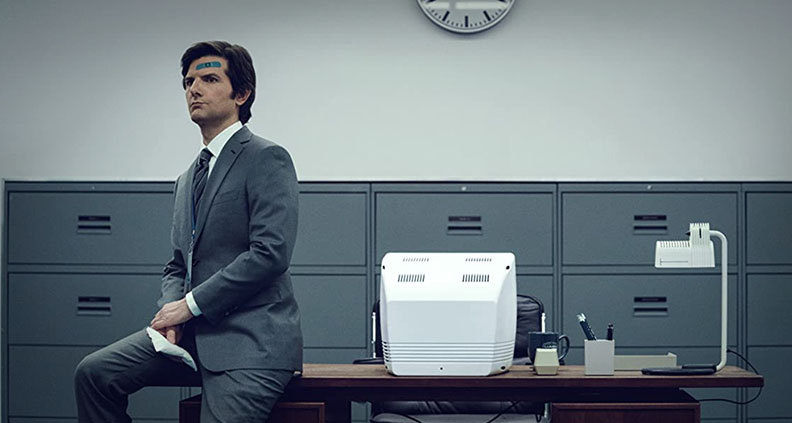
It’s rare that you can look at a set and know instantly what show it’s from. But that’s definitely the case with Severance. We spoke with production designer Jeremy Hindle about how he made the shows hallways and cubicles so iconic.
October
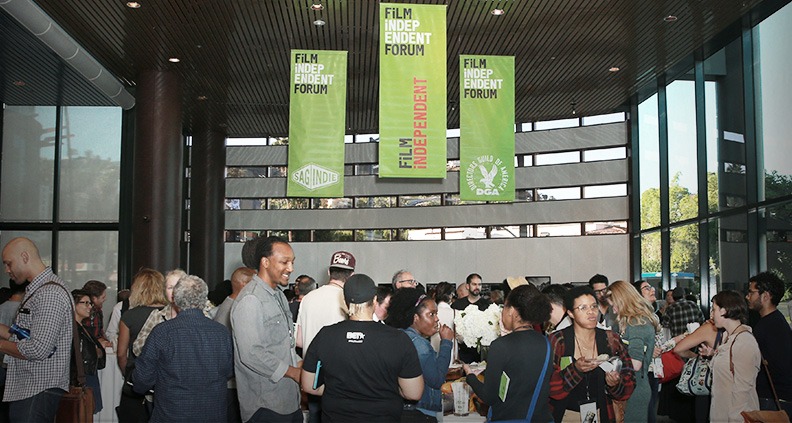
Money Matters: Talking Financing at This Year’s Forum, Part I
In an ever-changing industry, a reoccurring theme at this year’s forum was how tricky it is to get a film financed these days. Producers, execs, creators and other people in the film world broke down what’s working right now in this year’s panels, and we dissected it right here.
November
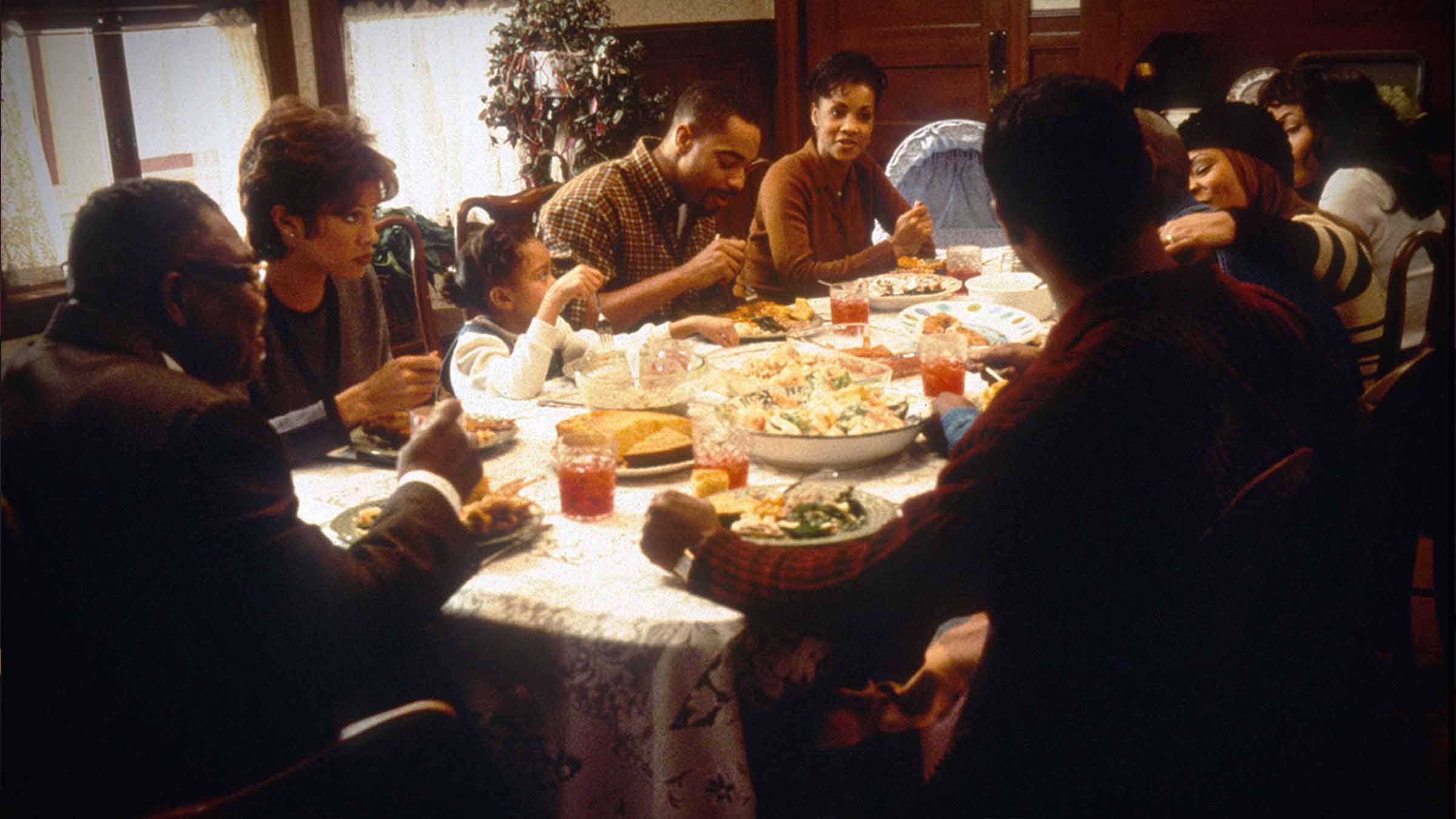
Six Thanksgiving Films to Get Your Taste Buds Tingling and Your Heart Pumping
While there’s no question we all can’t live without film, bodily sustenance is also important. We took a look at some food-focused films that hopefully can bring us all together.
December
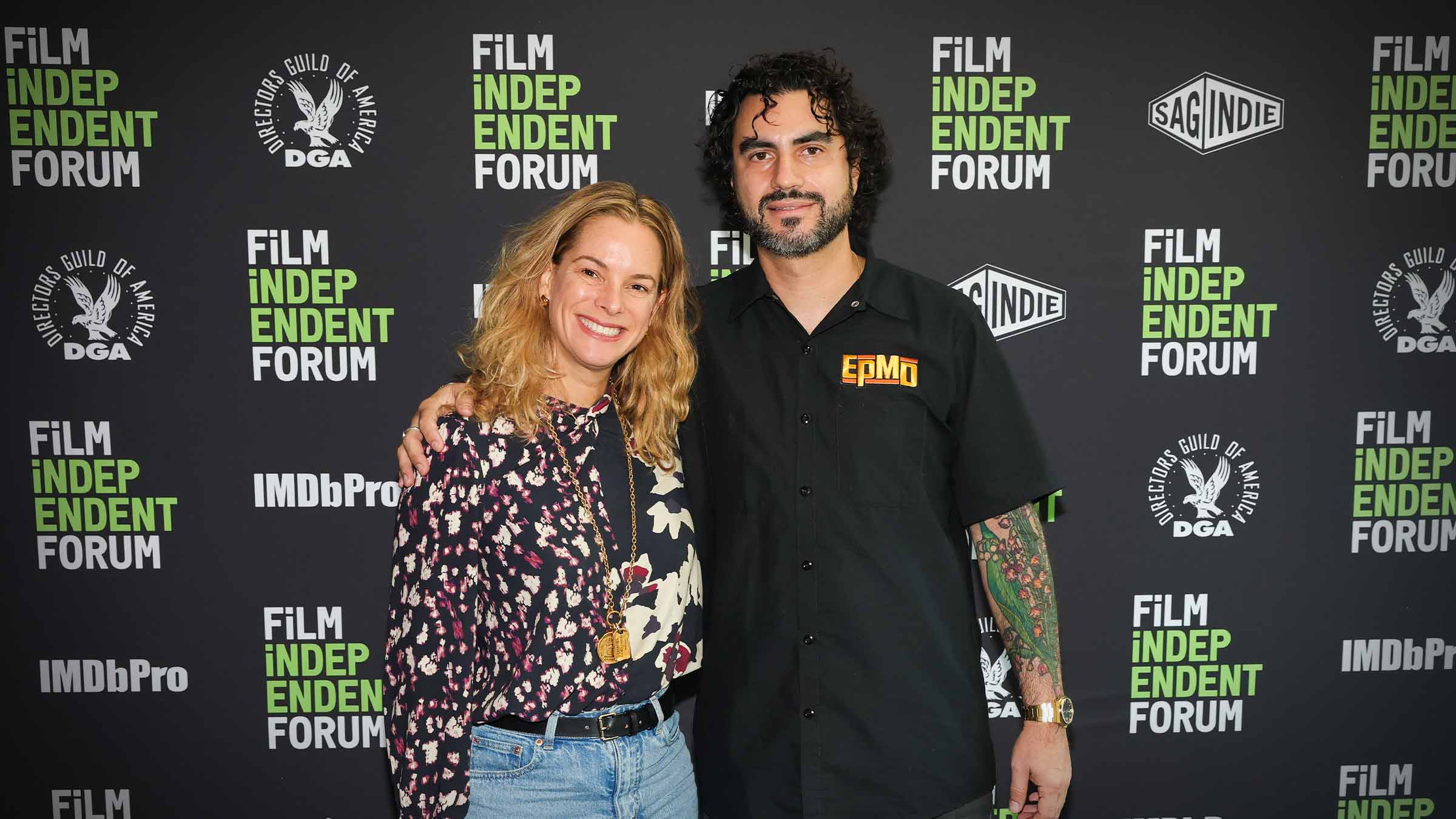
Case Study: How ‘Deepfaking Sam Altman’ Takes on the Legality of A.I.
Telemarketers’ Adam Bhala Lough brought his new film Deepfaking Sam Altman to us as a case study in the brave new world of moviemaking using A.I. He spoke with lawyer Lisa Califf about the ins and outs of the legal side of it’s use.
For over 40 years, Film Independent has helped filmmakers get their projects made and seen. The nonprofit organization’s core mission is to champion creative independence in visual storytelling in all its forms, and to foster a culture of inclusion. We support a global community of artists and audiences who embody diversity, innovation, curiosity and uniqueness of vision. To support our mission with a donation, click here.
Keep up with Film Independent…
Don’t Miss Indies: What to Watch in January
Happy New Year! Kicking off 2026 with a visual tour of the world, this month’s Don’t-Miss list includes films set in the US as well as Australia, Canada, Spain, Portugal, The Philippines, Belgium, Thailand, and Iceland. Some are English-language, but you’ll also hear Korean in The Mother and the Bear, Thai in A Useful Ghost, and the prize goes to Magellan for its globe-encompassing Spanish, Portuguese and Vasayan.
Please enjoy the journey.
WE BURY THE DEAD
When You Can Watch: January 2
Where You Can Watch: Theaters
Writer/Director: Zak Hilditch
Cast: Daisy Ridley, Brenton Thwaites, Mark Coles Smith
Why We’re Excited: It’s an Australian horror movie with a spin on zombies that forces Ava (Daisy Ridley, Star Wars: The Force Awakens) to not only avoid zombification but to face her own unfinished business. After a military disaster in Tasmania leaves casualties who don’t stay dead, Ava searches for her missing husband among civilian homes populated with wily corpses whose base instincts are still intact. Writer/Director Zak Hilditch (1992) wrote an initial draft that didn’t even involve zombies, but once they became a factor he challenged himself to make them as organic to the story as possible. Between the movie’s practical effects, detailed sets filmed on location in real homes (complete with family photos on the walls), the unorthodox take puts us in a position to see human life from a new angle.
THE MOTHER AND THE BEAR
When You Can Watch: January 9
Where You Can Watch: Theaters
Writer/Director: Johnny Ma
Cast: Kim Ho-jung, Lee Won-jae, Jonathan Kim
Why We’re Excited: Chinese-Canadian filmmaker Johnny Ma (Old Stone) has devised a whimsical Korean-Canadian comedy involving a comatose young woman (Sumi, played by Leere Park) who fell after coming upon a wild bear in the streets of Winnipeg. Flying to her aid from Seoul, her mother Sara (Kim Ho-jung, Revivre) gets into dutiful motherly mischief – starting with searching out a suitable husband for her daughter. Playing with Korean tropes, Ma draws heavily on stylistic sensibilities in K-Drama – a value that required training for the Chilean post-production unit who had to be exposed to the genre for its specific expression. “I thought The Mother and the Bear was a very fresh take on something Korean,” said Ho-jung in Asian Movie Pulse. Mother explores courage, cultural identity and finding stability in a world knocked sideways.
MAGELLAN
When You Can Watch: January 9
Where You Can Watch: Select Theaters
Writer/Director: Lav Diaz
Cast: Gael García Bernal, Ângela Azevedo, Amado Arjay Babon
Why We’re Excited: Spirit Award Nominee Lav Diaz (Norte, the End of History) is known for his lengthy films, and his meticulously researched reflection on the final 15 years of Portuguese explorer Ferdinand Magellan takes 3 hours to unfold. Following Magellan (Gael García Bernal, Mozart in the Jungle) from Europe to Southeast Asia, we watch an ambitious young man harden with cruelty and lust for power. The Filipino champion of slow cinema puts his seven years of research on rich display with shocking scenes of oppression and a raw revisitation of the explorer narrative. “It’s a film about how power intoxicates and the myth of discovery”, says Diaz, quoted by Festival de Cannes. “Here, Magellan is no hero, he is a man facing his own oblivion.”
YOUNG MOTHERS
When You Can Watch: January 9
Where You Can Watch: Select Theaters
Writer/Director: Jean-Pierre Dardenne, Luc Dardenne
Cast: Babette Verbeek, Elsa Houben, Janaina Halloy
Why We’re Excited: The Spirit nominated Dardenne brothers (The Kid with a Bike) are no strangers to the indie screen, with twelve features behind them and a tendency to highlight stories of personal transformation through human connection. Inspired by a real-life institution for teen mothers in Liege, Belgium, the Dardennes wrote a docurealistic script highlighting the stories of five new mothers who are also minors. Among the inherent challenges of new motherhood, each of the young women must also contend with drug addiction, mental illness, and family dysfunction. Facing their futures with support from the care workers teaching them to look after their babies, they make difficult choices under pressure. The Guardian calls it a “poignant, compassionate work of unforced social realism.”
DEAD MAN’S WIRE
When You Can Watch: January 16
Where You Can Watch: Theaters
Director: Gus Van Sant
Cast: Dacre Montgomery, Bill Skarsgård, Al Pacino
Why We’re Excited: Spirit Award nominee Gus Van Sant (Elephant) was inspired by the breakneck pace of Austin Kolodney’s scripted retelling of a true crime story from 1977. One February morning, an Indianapolis man named Tony (Bill Skarsgård, It) set out to kidnap the president of Meridian Mortgage Company – M.L. Hall, played by Spirit Award nominee Al Pacino (Looking for Richard). Finding him out on vacation, Tony kidnaps Hall’s son instead (Dacre Montgomery, Stranger Things). Keeping his hostage submissive through a sawn-off shotgun on a wire rigged to shoot, Tony claims the company deliberately sabotaged his investment; he demands $5 million and a personal apology. “When I read the script,” said Van Sant in a Variety interview, “there were links embedded in it — you could click them and hear the real 911 calls. Tony talked so fast, like Scorsese on a cocaine bender, cracking jokes and losing his temper. I thought, ‘This is an amazing character.’”
Five Film Independent members hold Executive Producer roles: Tiffany Boyle, Oleg Dubson, Max Loeb, Katharina Otto-Bernstein, and Elsa Ramo.
CHARLIE THE WONDERDOG
When You Can Watch: January 16
Where You Can Watch: Theaters
Writer/Director: Shea Wageman
Cast: Owen Wilson, Sebastian Billingsley-Rodriguez, Tabitha St. Germain
Why We’re Excited: This animated adventure is about a dog with superpowers, but it’s also about restoring a friendship that’s suffered a rift. Voiced by Owen Wilson (Spirit Winner Inherent Vice), Charlie is an ordinary dog with a boy best friend named Danny (Dawson Littman). Danny imagines heroic adventures for the pair of them, but when Charlie is abducted by aliens and given real superpowers, the wonderdog is suddenly catapulted into world renown all on his own. But the supervillain that must ultimately be confronted is a cat plotting the downfall of all humankind. It will take a human/canine duo to win the final showdown.
ISLANDS
When You Can Watch: January 30
Where You Can Watch: Theaters
Writer/Director: Jan-Ole Gerster
Cast: Sam Riley, Stacy Martin, Jack Farthing
Why We’re Excited: A reserved missing-person mystery from German filmmaker Jan-Ole Gerster (A Coffee in Berlin), inspired by a Fuerteventura escape from another Berlin winter years ago. As Gerster considered the tennis coach hitting ball after ball on a dilapidated court, the story began to emerge: a retired tennis pro named Tom (Sam Riley, Control) trading on his opportunities of a decade ago while slowly going to seed among vacationers and a steady stream of admirers. Giving tennis lessons by day, he befriends a 7-year-old boy – the son of Anne (Stacy Martin, The Brutalist) and Dave, played by Jack Farthing (Spirit Award nominated Rain Dogs). When Dave goes missing and Tom is the primary suspect, it slowly becomes the wakeup call he would never have sought.
MOSES THE BLACK
When You Can Watch: January 30
Where You Can Watch: Theaters
Writer/Director: Yelena Popovic
Cast: Omar Epps, Chukwudi Iwuji, Wiz Khalifa
Why We’re Excited: 50 Cent is on the list of Executive Producers for this movie about a fourth-century Egyptian saint set in modern-day Chicago. Omar Epps (Love & Basketball) stars as Malik, a gang leader emerging from prison and immediately hitting a power struggle with his old crew. He is visited by Saint Moses the Black (Chukwudi Iwuji, Designated Survivor), a former gang leader himself who had a sudden change of heart and became a priest. “He killed a lot of people and did a lot of bad things,” Serbian filmmaker Yelena Popovic (Man of God) told The Soulful Side of Life with Ally Portee, “now people were coming to get advice from him.” Punctuated by performances from multi-platinum selling, Grammy-nominated artists Wiz Khalifa (Spinning Gold) and Quavo (High Rollers) as rival gang leaders, this promises to be a memorable retelling of a true story.
THE LOVE THAT REMAINS
When You Can Watch: January 30
Where You Can Watch: Select Theaters
Writer/Director: Hlynur Pálmason
Cast: Panda, Saga Garðarsdóttir, Sverrir Gudnason
Why We’re Excited: The changing seasons of an Icelandic hilltop sets the stage for this year in the life of a dissolving marriage. Icelandic filmmaker Hlynur Pálmason (Spirit Award nominee Godland) cast his three children as the energetic progeny of Anna (Saga Garðarsdóttir, The New Year’s Lampoon), an artist struggling to land a gallery show while managing her newly single motherhood. Her not-quite-ex-husband Magnús (Sverrir Gudnason, Borg vs. McEnroe) is a fisherman whose infrequent visits to the house seems to effect even more isolation from the family. The journey of the film centers on vignettes of their previous life together and bits of magical realism, for an intimate exploration of familial complexity and the deep devotion that never ends.
PROGRAMMER’S PICK: A USEFUL GHOST
When You Can Watch: January 16
Where You Can Watch: Theaters
Director: Ratchapoom Boonbunchachoke
Cast: Davika Hoorne, Wisarut Himmarat, Apasiri Nitibhon
Why We’re Excited: From Film Independent Lead Programmer Jenn Wilson
A first feature from Thai writer/director, Ratchapoom Boonbunchachoke, A Useful Ghost, premiered at Cannes in 2025 where it won the Cannes Critics Week prize. One of the most bizarre, hilarious, and inventive movies of the year, the film tells the parallel stories of a young gay student called the Academic Ladyboy whose vacuum cleaner is possessed by a ghost, and appliance factory owner, March, whose wife has just died and been reincarnated as a vacuum cleaner. March’s controlling mother, however, is not amused that his wife is back in his life and a human vs ghost drama unfolds enveloping more than just the family. This movie is an enchanting and much-needed addition to a year of film that felt lacking in so many ways.
Film Independent member Karim Aitouna serves as Co-Producer.
KEY
![]()
Film Independent Fellow or Member
![]()
Film Independent Presents Screening, Q&A
![]()
Microbudget
![]()
Filmmaker or Lead Characters of Color
![]()
Film Independent Spirit Award Winner or Nominee
![]()
Female Filmmaker
![]()
LGBT Filmmaker or Lead LGBT Characters
![]()
First-time Filmmaker
![]()
LA Film Festival Winner or Nominee
Film Independent Artist Development promotes unique independent voices by helping filmmakers create and advance new work. To become a Member of Film Independent, just click here. To support us with a donation, click here.
Keep up with Film Independent…
FiSpo Spotlight: Three Films That Have Nothing to Do with Christmas
Welcome to Fiscal Spotlight, a special monthly round up of projects—at all stages of production—working their way through Film Independent’s Fiscal Sponsorship pipeline. Enjoy!
***
‘Tis the time of year with plenty of cheer. But some may get wary of all that is merry. For all those Grinches, we have three unique pitches. Films that would like donations– tax-deductible too, that deserves an ovation!
And have no fear, there’s nary a reindeer. No holly, no tinsel, no menorahs, no mangers. But tales of missing fathers, street photos and queer strangers. So even if the holiday drives you mad, having a giving spirit isn’t so bad. Take a look below and read even more, about films that deserve cash that’s saved in your drawer.
’99 SNAPSHOTS
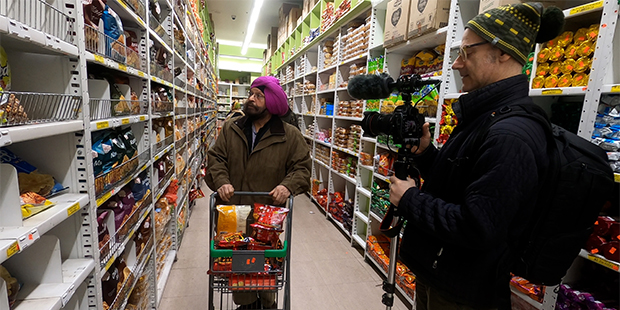
Project type: Nonfiction Episodic
Project status: Post-Production
Writer/Director: Michael Berman
About the Project: Twenty years after snapping pictures of over 300 strangers in New York City, photographer Michael Berman is on a mission to find the people from those photos and learn how their lives have evolved, ask what inspires them, and hear their thoughts on how to live one’s best life in our complex and challenging world.
Meet the Filmmaker: Michael Berman was born in Washington, DC, in 1967, and has been taking pictures since the late ’80s, when he began to document life in New York City while attending NYU. In the late ‘90s, Michael began to find work as a photographer, first for community papers in Brooklyn and next for the New York Daily News. Since 2006, he has worked as a freelance photographer, including for numerous newspapers and magazines, restaurants, brands, schools, and non-profits.
JIA
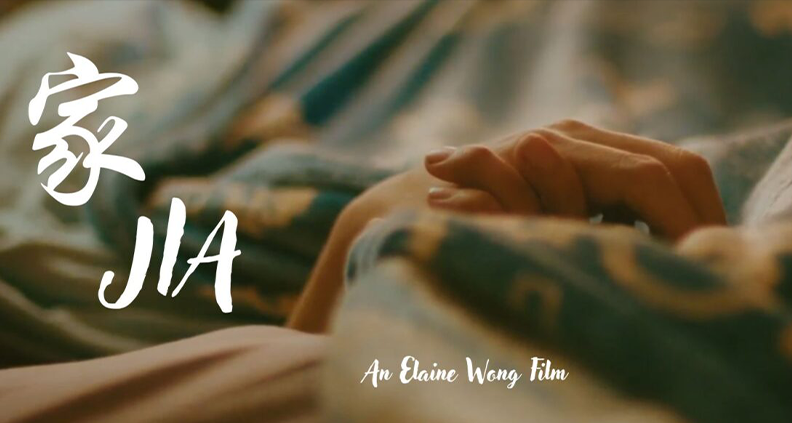
Project type: Fiction Feature
Project status: Development
Writer/Director: Elaine Wong
Producer: Yuky Shen, Lareina Wong, Xiaojia Zhu
About the Project: When Sophia’s non-English-speaking father-in-law Ping vanishes in the U.S., she and her husband Daniel embark on a cross-country road trip with their newborn son. As they search for Ping, they must confront a labor trafficking scheme, the cracks in their marriage, and an uncertain future.
Meet the Filmmaker: Elaine Wong is a Hong Kong-born American writer, director, and producer. Her film, Where Dreams Rest, and her web series, Three Chen Sisters, have been officially selected at over 30 film festivals worldwide, including the Sundance Film Festival: Hong Kong. These projects have earned her a sound fellowship with Dolby Atmos and have been showcased on platforms such as Kanopy, Omeleto, Viddsee, and Roku TV. Her latest narrative short, 52Hz, is currently on AMC+. Her debut feature screenplay, Jia, has been partially financed and is currently in pre-production. She earned her MFA in Film Production from the University of Southern California.
UNTIL DEATH
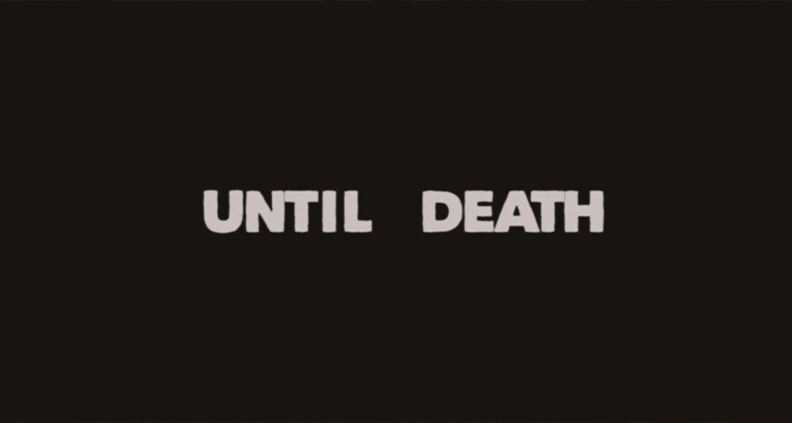
Project type: Fiction Short
Project status: Post-Production
Writer/Director: Zachary Thorpe
Producers: Sofia Snyder, Jasmijn van Bruggen
About the Project: In the aftermath of an apocalyptic event, Oliver takes refuge in an abandoned house and seeks a quick end to his life. When Lonnie, a friendly stranger, breaks in, Oliver must reckon with his own mistrust and desire as he’s offered a chance for genuine connection with another human being. Until Death is a queer post-apocalyptic story about what it means – and how painful it is – to be alive.
Meet the Filmmaker: Zachary Thorpe is a filmmaker and writer from North Carolina, now based in Los Angeles. A two-time AFF Screenplay Competition 2nd Rounder, his work has also been recognized by the Hollywood Verge Film Awards and the HollyShorts Screenplay Contest. Until Death will be his solo directorial debut.
Learn more about Fiscal Sponsorship, including its benefits and eligibility requirements by visiting our website. See which projects are currently being supported via our Sponsored Projects page.
Film Independent Artist Development promotes unique independent voices by helping filmmakers create and advance new work. To support our work with a donation, please click here. Become a Member of Film Independent here.
Keep up with Film Independent…
Case Study: How ‘Deepfaking Sam Altman’ Takes on the Legality of A.I.
A.I. continues to be a hot-button issue in filmmaking circles. Despite plenty of valid ethical concerns, it’s use is only growing. A huge part of those concerns has to do with copyrightable material. What is protected as both an input, the human created material an AI model was trained on, and output, the newly generated AI content, is at the heart of this.
As part of this year’s Forum, we looked at all the legal implications of both inputs and outputs with a case study, Deepfaking Sam Altman. Legal expert Lisa Califf spoke with director Adam Bhala Lough about the film, a gonzo documentary that explores what it means to use AI technology.
The film follows Bhala Lough as he attempts to interview Altman, fails, and then goes to India to build a digital version of Altman he calls “Sam-bot” with AI expert Divyendra Jadoun, know online as “the Indian Deepfaker.”
To train the Large Language Model (LLM), they input as much publicly available information on Altman as they could find. Califf, who also acted as a lawyer for the film, noted that for Fair Use consideration, the legal team needed to know exactly what information the LLM was trained on. “What the Copyright Office wants you to do, which tricky, is identify what’s AI and what’s human created so that there’s an accurate record of what this work is and what’s protected and what’s not,” she said.
Bhala Lough then went a step further and decided to let Sam-bot direct the rest of his film, which created more legal questions. Califf said that after some discussion the copyright issue was easier here because instead of the AI generating the content, something which is not copyrightable, the bot was telling what the humans what to do, and because the content was created by humans, it was legally protected. Don’t worry about AI directors just yet, because the Sam-bot’s direction was terrible, and most of the time, unshootable.
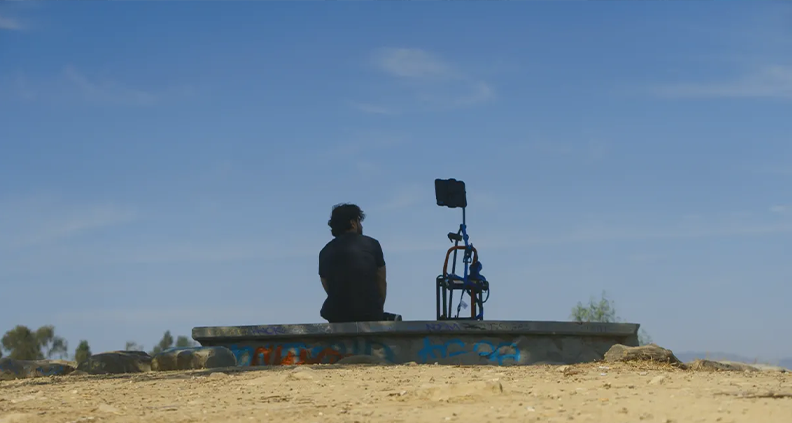
Another issue was featuring a public figure like Sam Altman without his consent. Califf explained that in the U.S., the First Amendment offers an exception for artistic expression as long as it’s clear that there is no deception involved.
“I do think in the future, if someone wanted to do reenactments or if someone wanted to do a documentary on Frank Sinatra or someone else who had passed away, what’s prohibiting them from using AI rather than using archival and reenactments? Honestly, I don’t think anything is. I think you could do that as long as the audience understood that this was a digital replica,” Califf said.
Looking at scripted content, Califf talked about the copyright issues with AI generated scripts. “People have this overarching fear of studios are going to use machines to write scripts. If the studio doesn’t have copyright over a script, they’re not going to put millions and millions of dollars in creating a movie that someone else can just create a version of. They wouldn’t do that.”
When it comes to copyright for AI-generated material that is in the style of a creator, courts are coming to the decision that the output has to be substantially different than the input. “One of the cases in particular, I think even had parameters on it, like you can’t use more than 50 words from one of these books at any one time,” Califf said. This is because it would harm the marketability of the original creator.
Finally, when it comes minor enhancements like up-rezing SD footage or cleaning up audio using AI tools, Califf said that as long as it’s clear that the material is original to the film, there isn’t a copyright issue.
Copyright is an important issue when it comes to AI use in films, and having a clear legal plan can make obtaining both Fair Use clearances and Errors & Omissions insurance much easier when it comes time to distribute. Something that both Califf and Bhala Lough emphasized throughout was how important transparency about AI use is throughout the process. AI is a new frontier, but with forethought, careful tracking of material, and a good legal plan, it can be a powerful tool that can be used in a way that is transparent and additive to a project.
Film Independent Artist Development promotes unique independent voices by helping filmmakers create and advance new work. To support our work with a donation, please click here. Become a Member of Film Independent here.
Keep up with Film Independent…